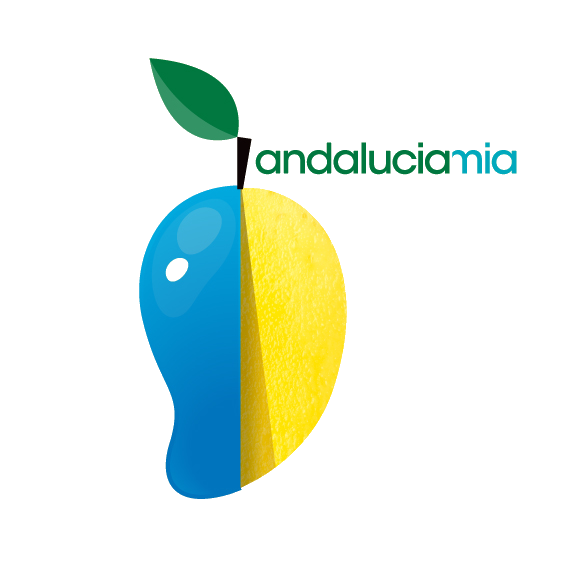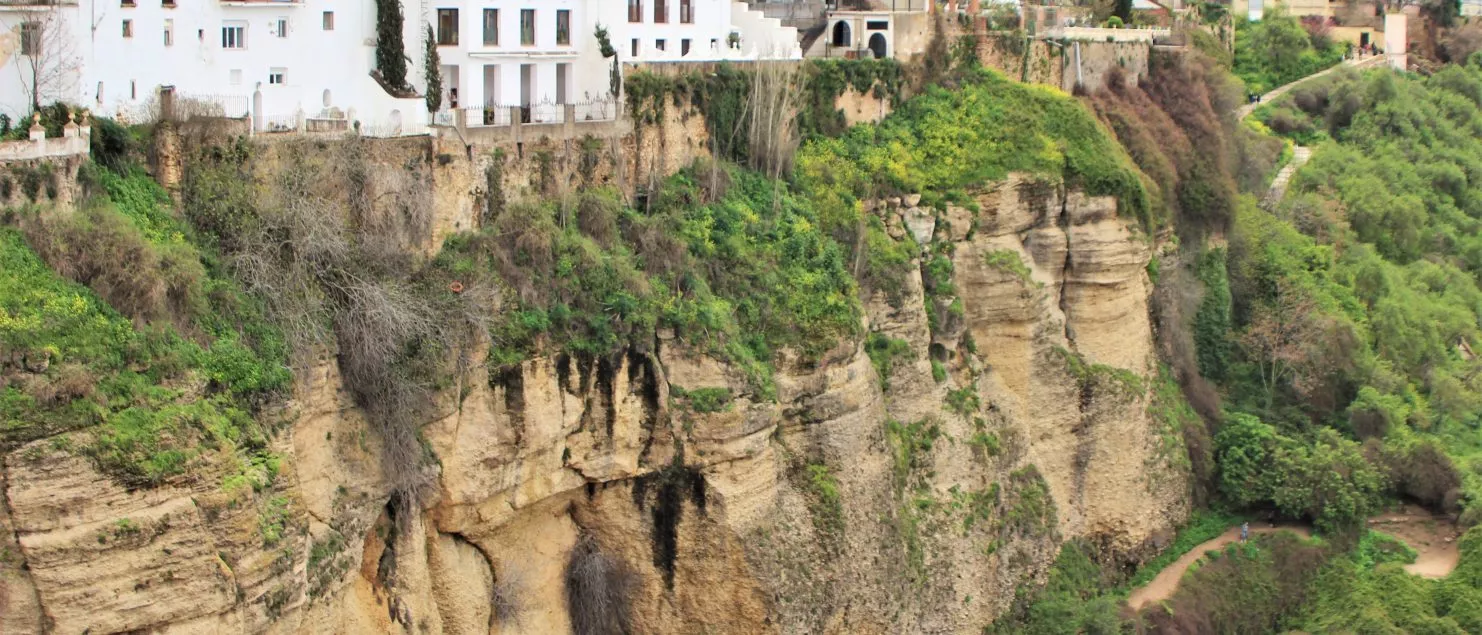What to see in Ronda – the 13 must-see places
Visit Ronda, the best things to see and do
In this article you’ll find the essential information on what to see in Ronda :
- A quick summary of Ronda and its origins
- Ronda as seen by men of letters and romantic travellers
- What to see and visit in Ronda ?
- Where to eat in Ronda ?
- What to do in Ronda ?
- Romantic Ronda Fair in May
- Map of the town
- Find accommodation
- What to visit around Ronda?
- Some useful links (car hire, other ideas for visits)
- A selection of beautiful experiences to discover in Ronda and its surroundings
A quick summary of Ronda and its origins
A visit to Ronda is a visit to a town on top of a mountain in the province of Málaga. Ronda overlooks a steep gorge (Tajo), over 100 metres high. At the bottom, the river Guadalevin can be seen running through the town.
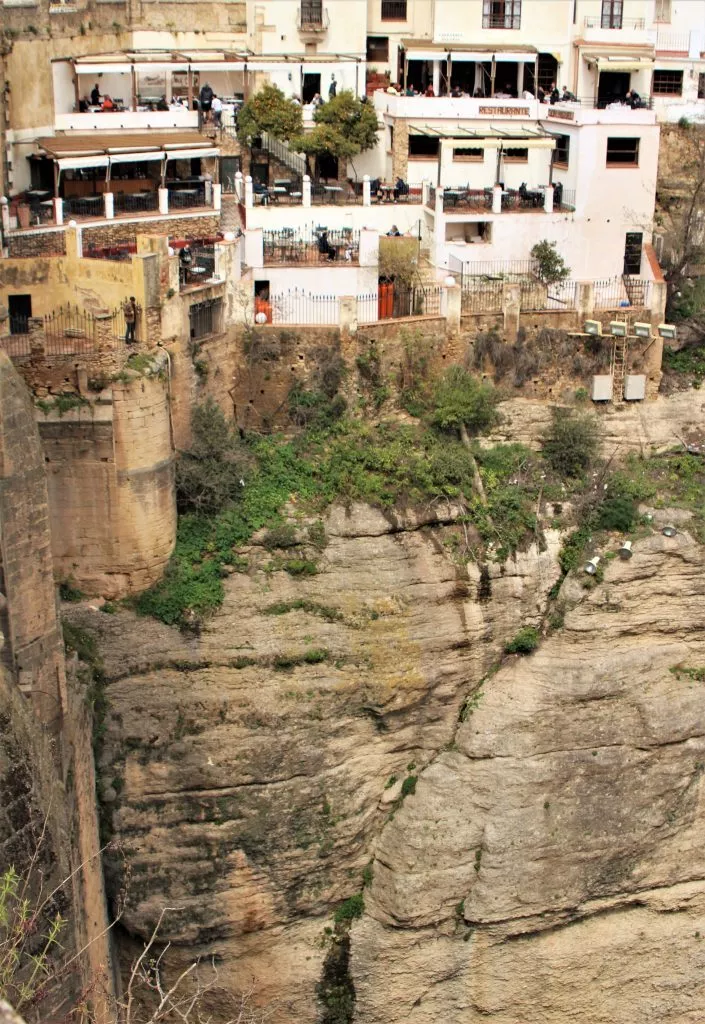
This gorge separates the city into two distinct parts; that of the 15th century and that of the Al-Andalus period.
From the city, including the New Bridge, completed in 1793, the scenery is breathtaking and offers surprising views.
Its origins
Ronda was born in Roman Spain, at the time of Julius Caesar, in the 1st century BC.
At that time a Roman “villa” was established a few kilometres from the present-day Ronda. It was called Acinipo (the ruins of the Roman theatre in Acinipo are magnificent). Acinipo means “the city of wine”, it is one of the few places from which the Romans exported wine. The cultivation of vines is still important around Ronda today.
It should be noted, however, that the Roman writer of that time, Pliny the Elder, refers to an early settlement of the site, by Iberians, which bore the name Arunda.
During the Al-Andalus period, Acinipo was one of the first places where the Moors settled. It has to be said that the “road was already paved” …. There was a Roman road that led from Gibraltar to Acinipo.
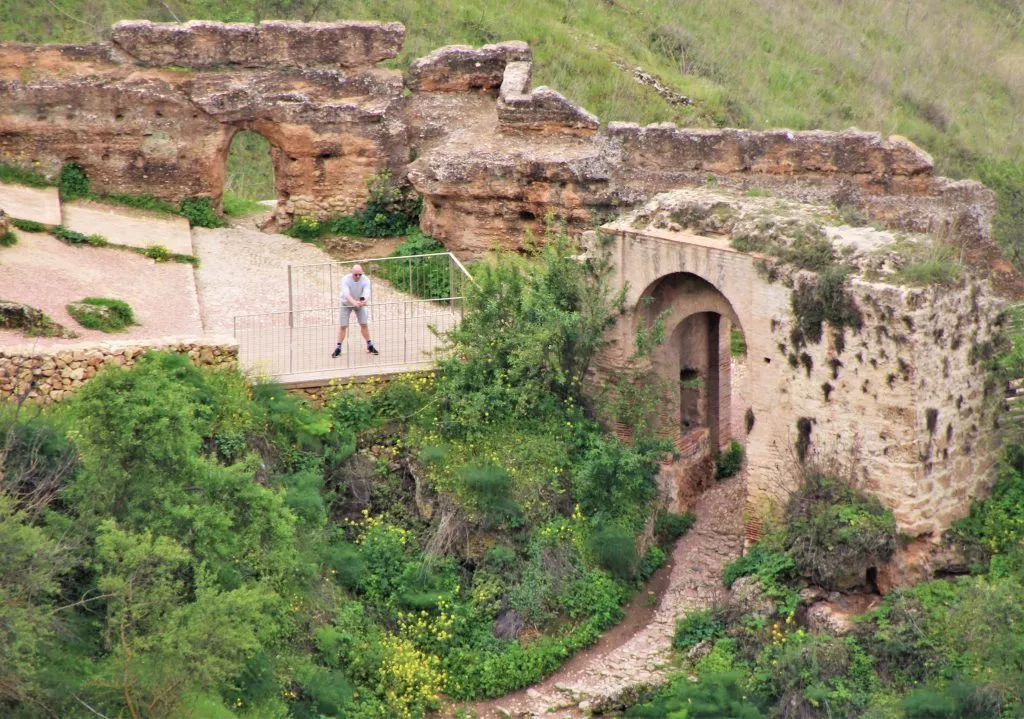
They built a town which was then called Izna-Rand-Onda.
Ronda as seen by men of letters and romantic travellers
Note: you can go straight to the list of the best places to see in Ronda after this chapter.
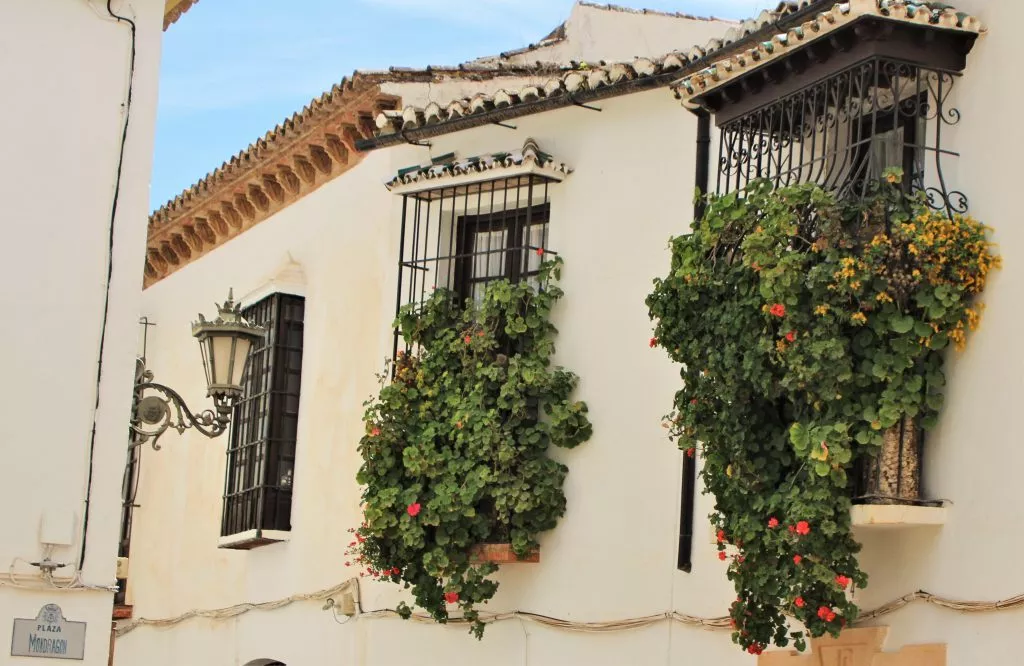
Ronda is known and recognized worldwide by celebrities who have fallen in love with the city. This has helped to make Ronda a popular stop for travellers, especially romantic travellers.
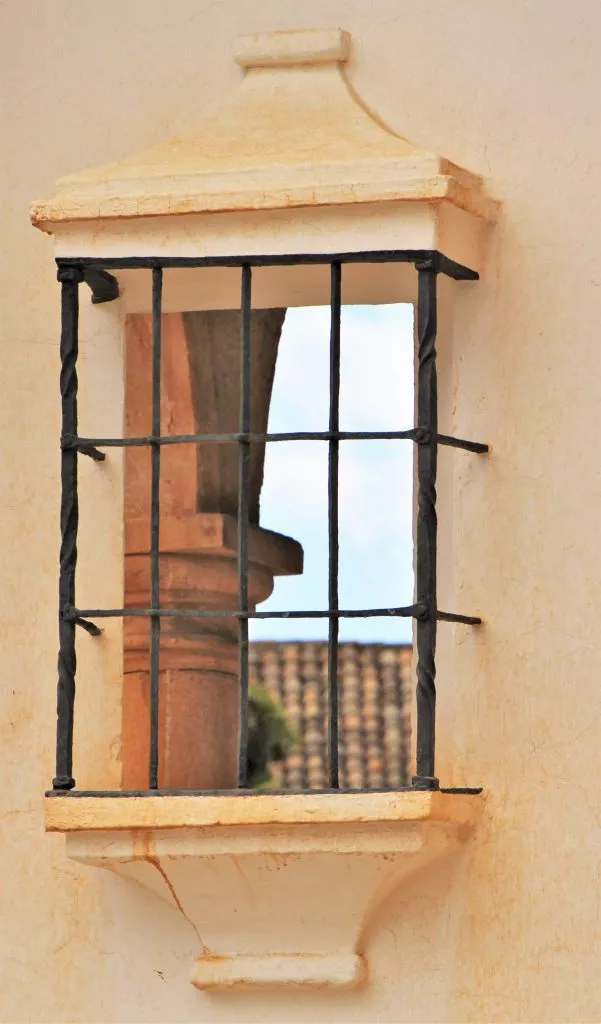
The latter were fascinated by the Puente Nuevo, the steep gorge with its houses built on the cliff, the mountain, the brigands’ roads, its palaces, …
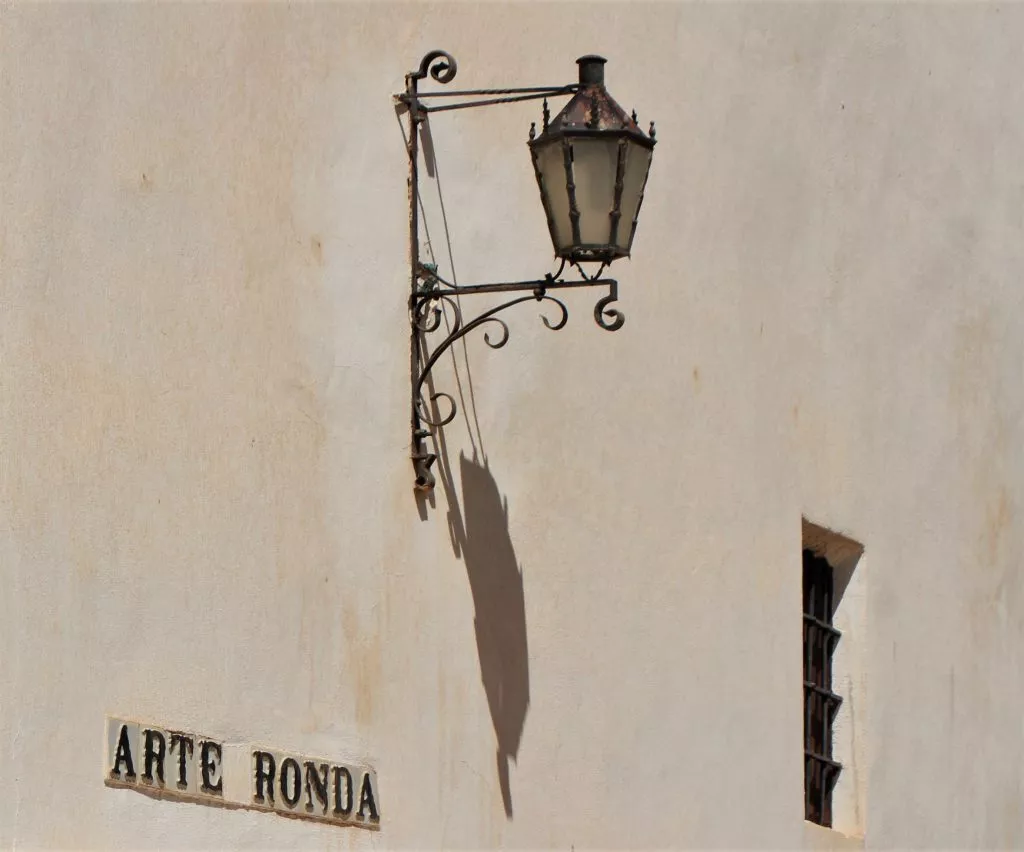
To list all the personalities would make it several pages long, so let’s mention some of the most emblematic ones:
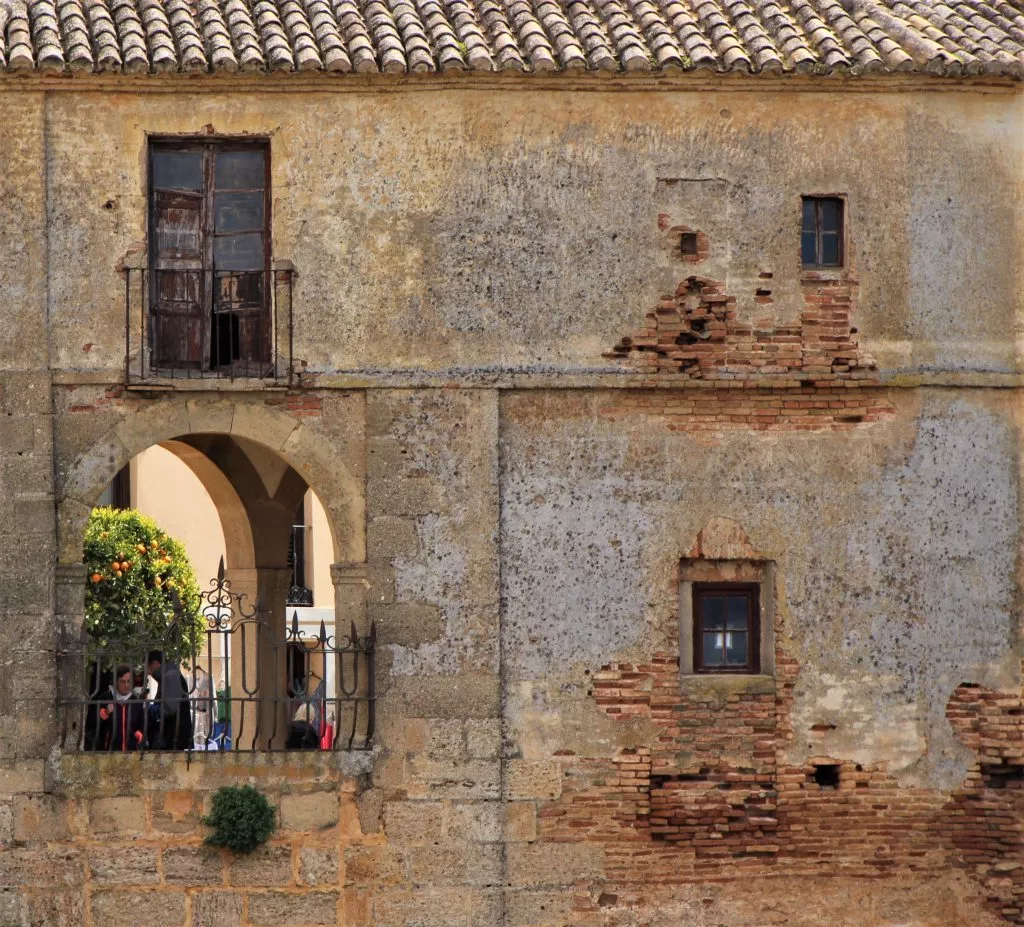
Pliny the Elder, at the time of the Roman Empire.
The king poet of Sevilla: al-Motámid.
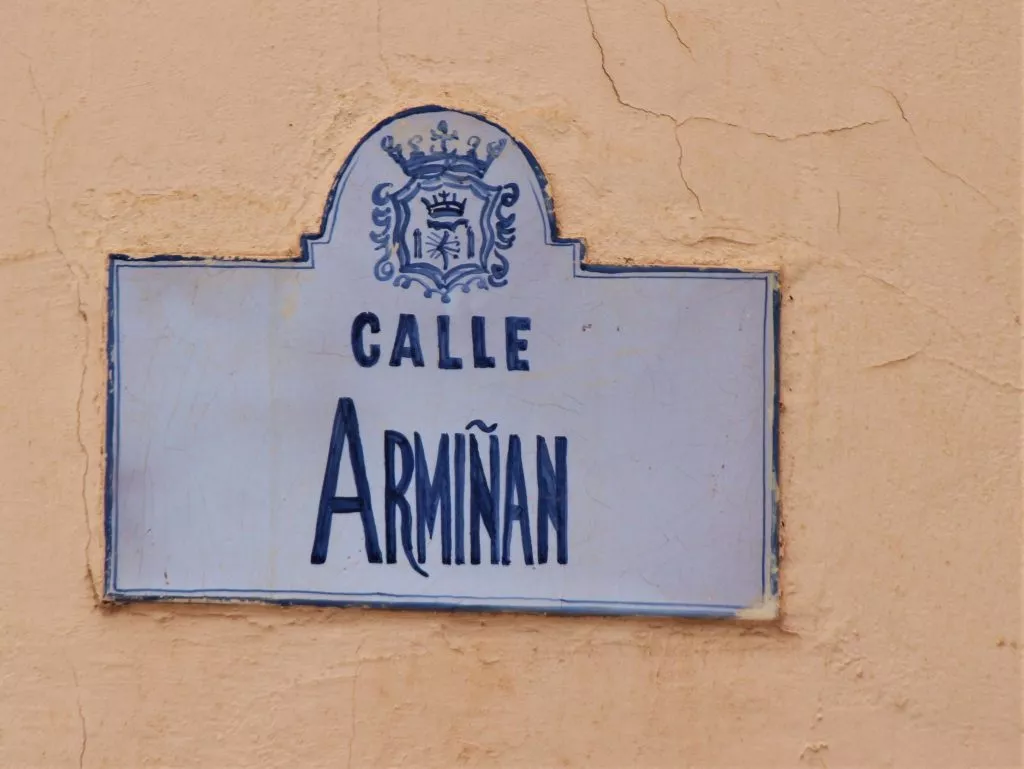
Cervantes, author of the famous Don Quixote
He lived for some time in the Posada de las Animas (Hostel of the Souls), pictured below.
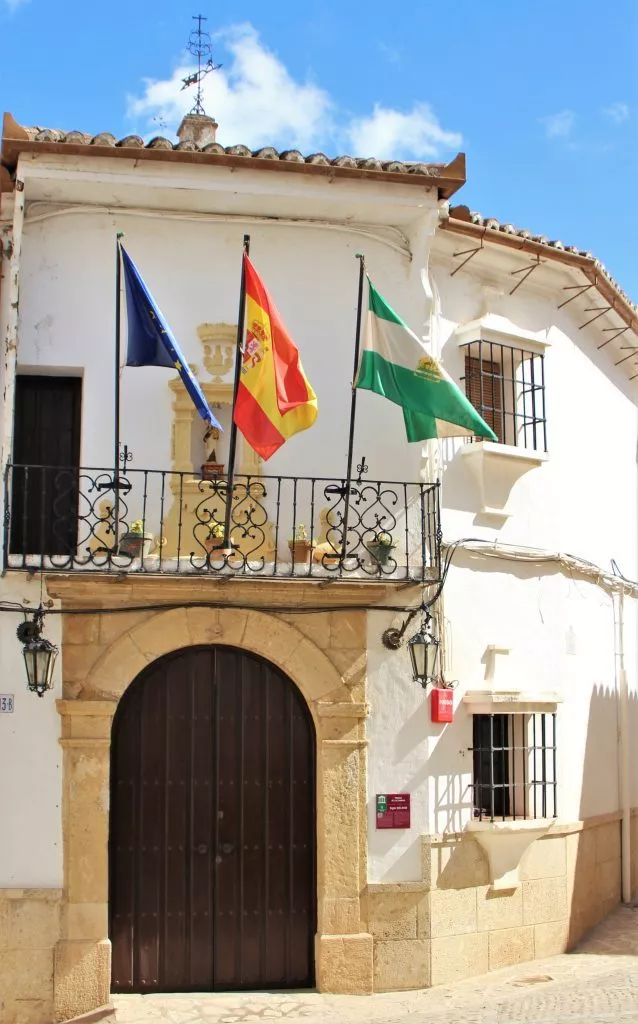
Rainer Maria Rilke, magnificent German poet of the early 20th century
He stayed in Ronda for a few months between 1912 and 1913 at the Hotel Catalonia Reina Victoria. A statue of Rilke can be seen in a garden next door. This beautiful hotel is still open today to book a room
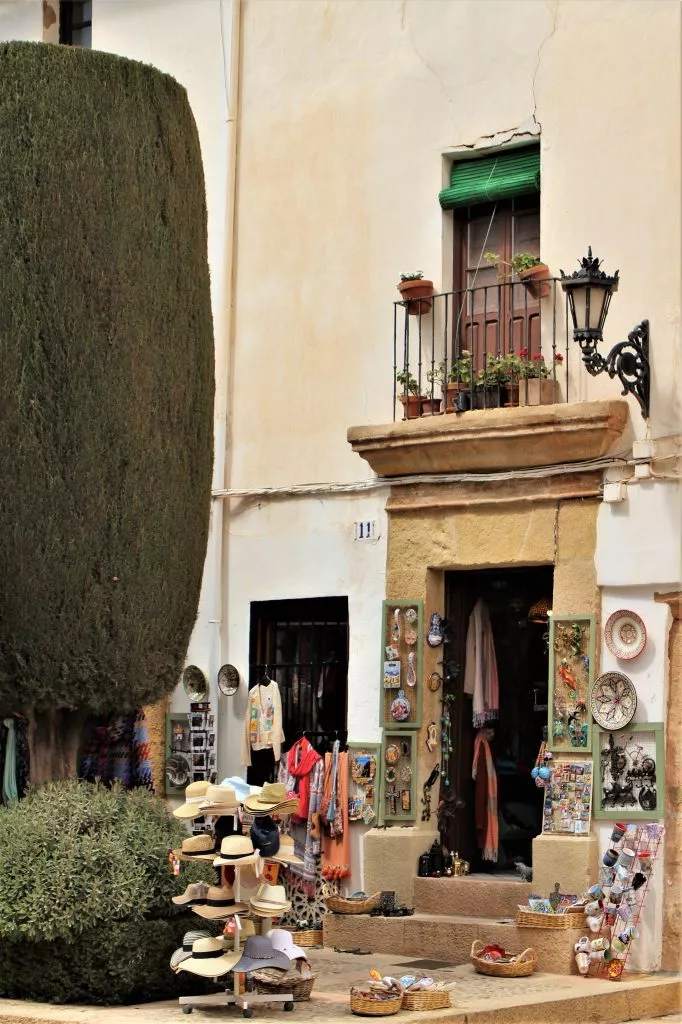
Rilke defined Ronda as the “dream city”!
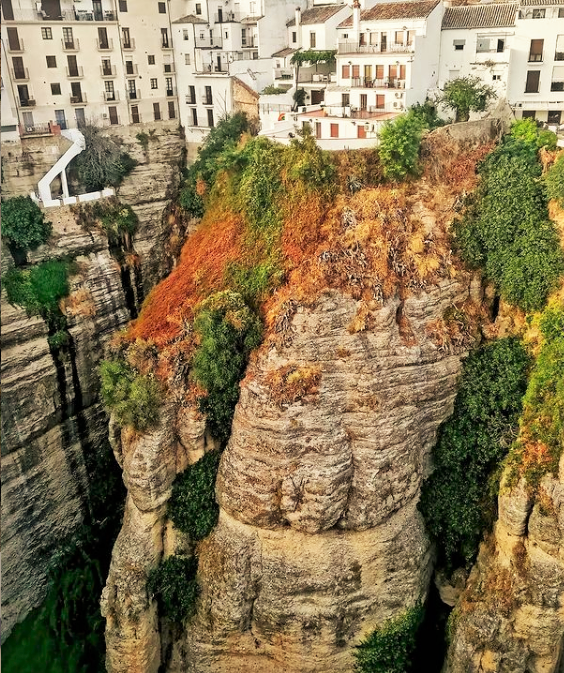
He would say of Ronda: “The spectacle of this city, sitting on the mass of two rocks torn by the pickaxe and separated by the narrow and deep gorge of the river, corresponds very well to the image of this city revealed in a dream. The sight of this city is indescribable and around it stretches a spacious valley with cultivated plots, holly and olive trees. And there, in the distance, as if it had regained all its strength, the pure mountains rise, chain after chain, forming the most splendid background.”
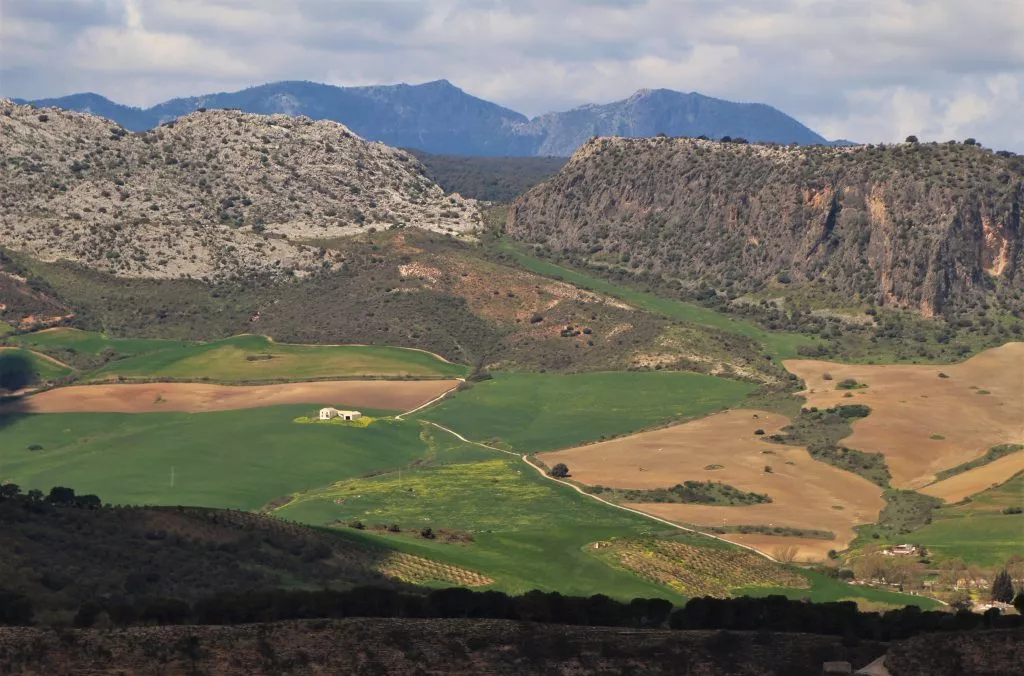
Orson Welles, American director of the famous “Citizen Kane
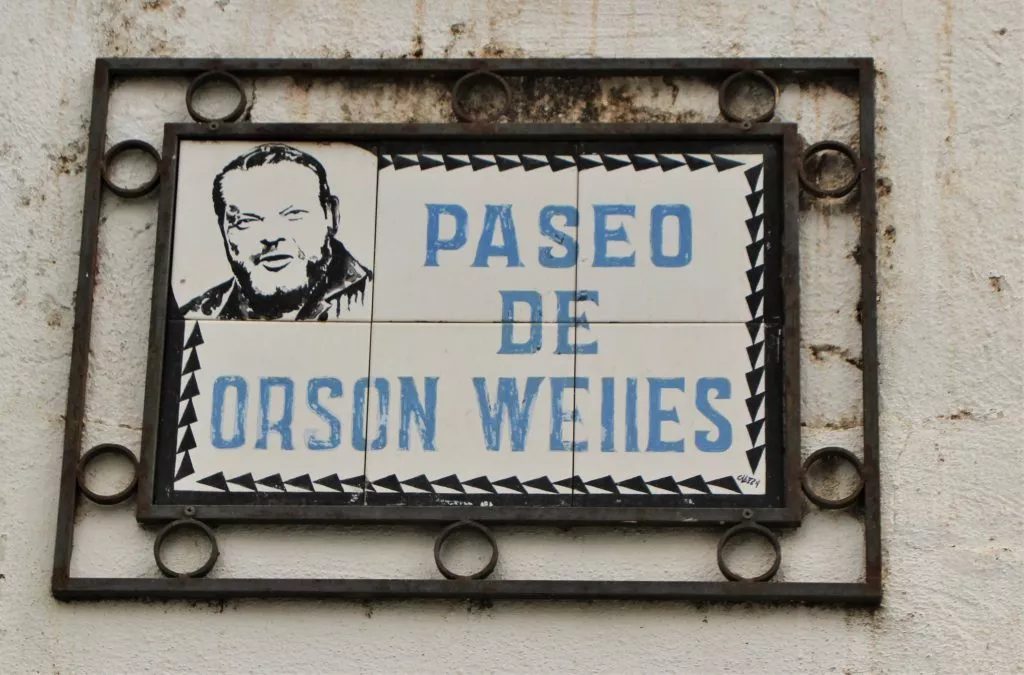
He is also the author of this sentence: “A man does not belong to the place where he was born, but to the place where he chooses to die.
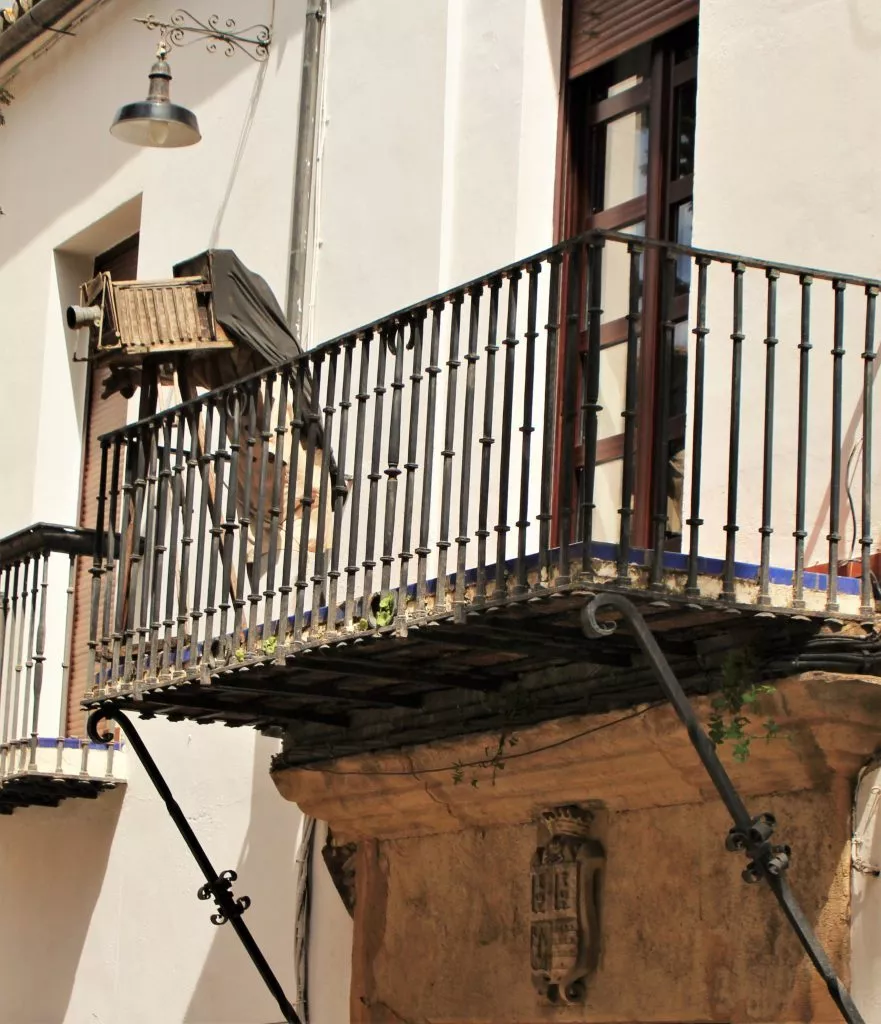
Orson Welles’ funeral was held, in Spain, at the El Recreo San Cayetano estate. His ashes were deposited in Ronda in 1987, with the family of the matador Ordonez.
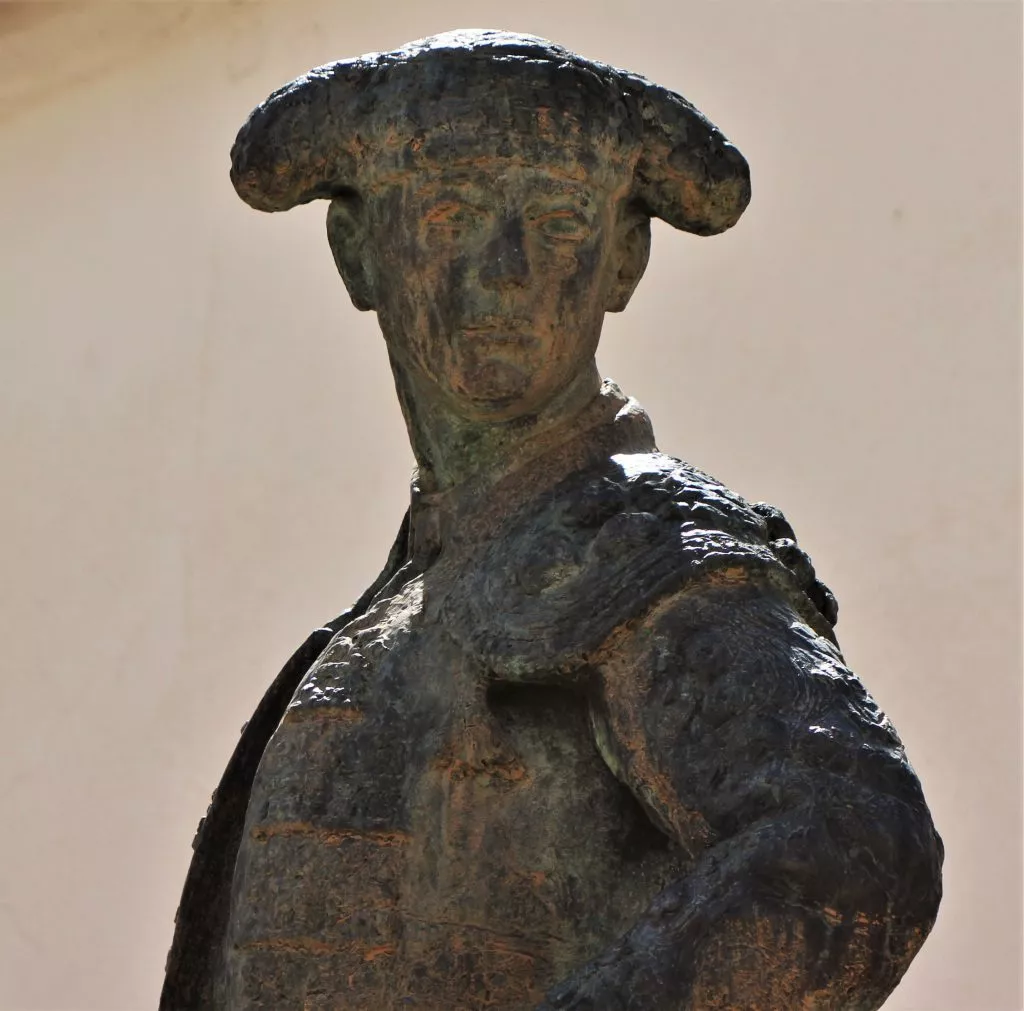
Ernest Hemingway, American writer
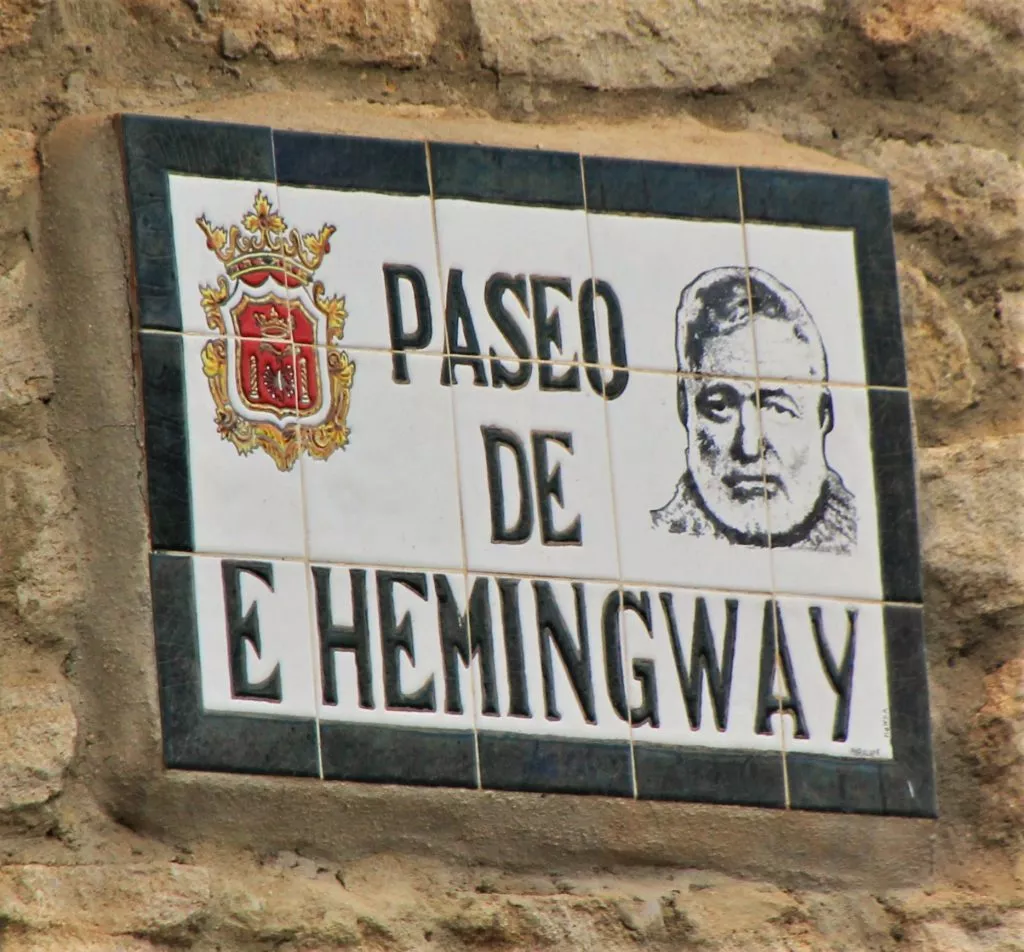
Ernest Hemingway on Ronda: “Ronda is the place to go, if you are planning to travel to Spain for a honeymoon or to be with a girlfriend. The whole town and its surroundings are a romantic whole…
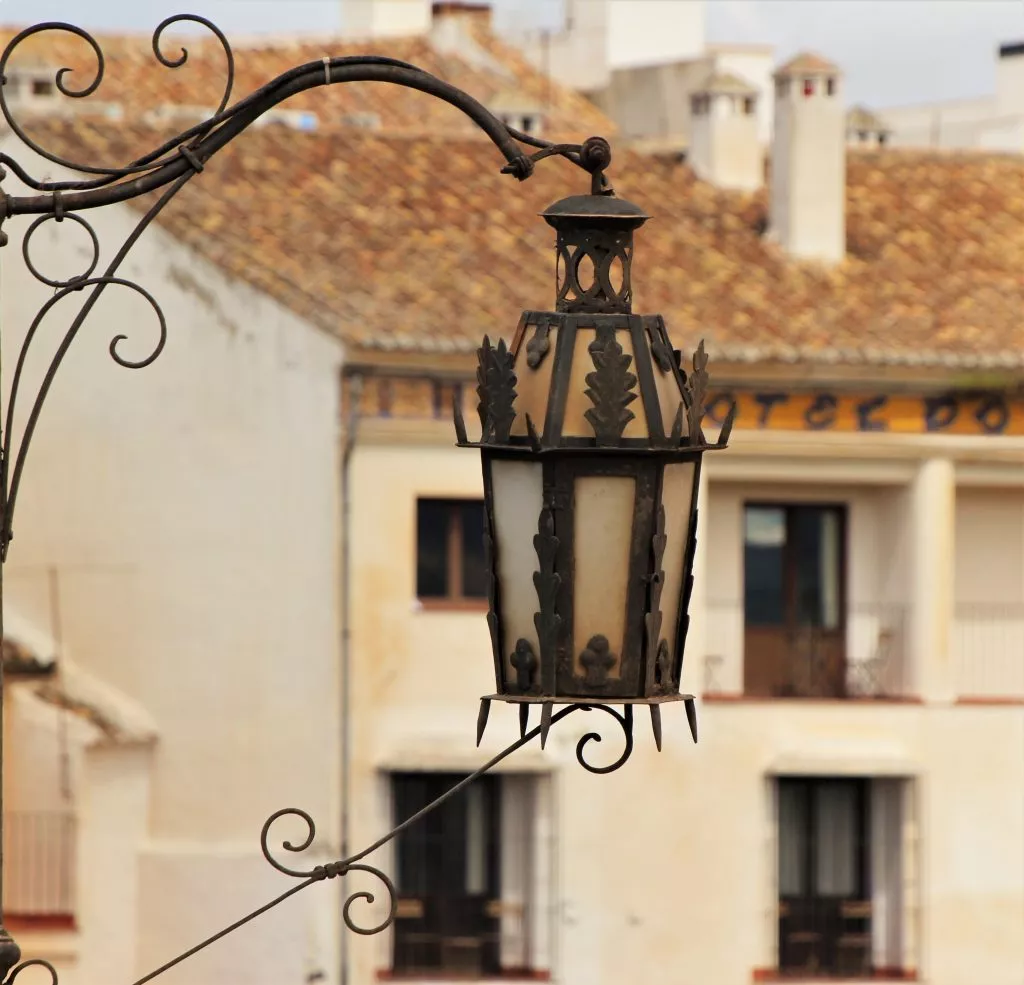
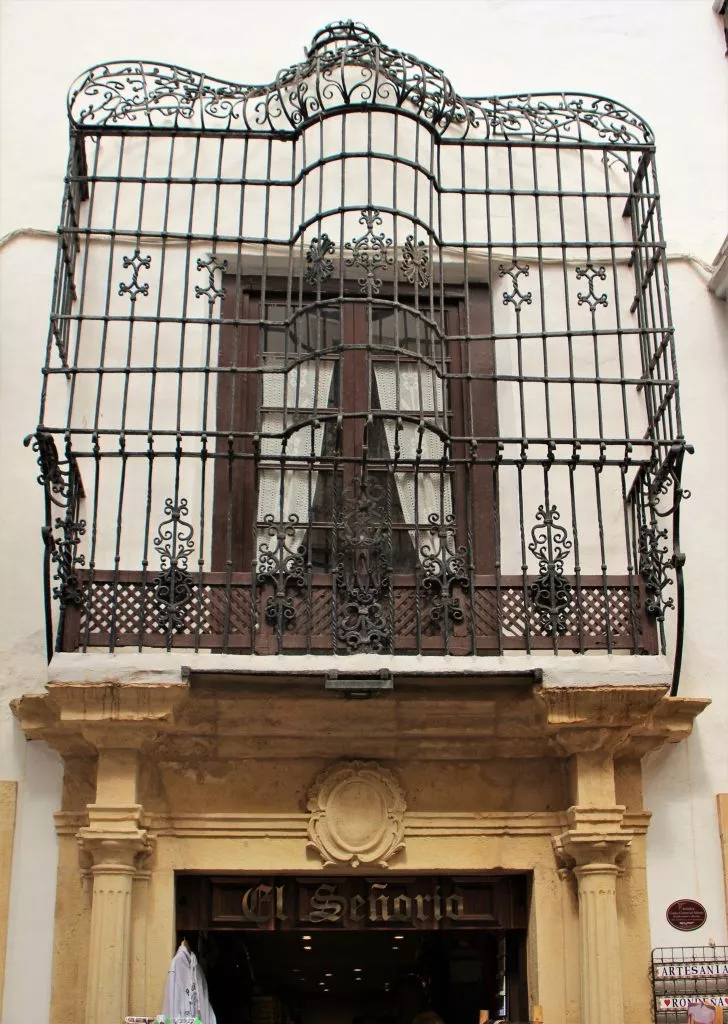
… Beautiful walks, good wine, excellent food, nothing to do“
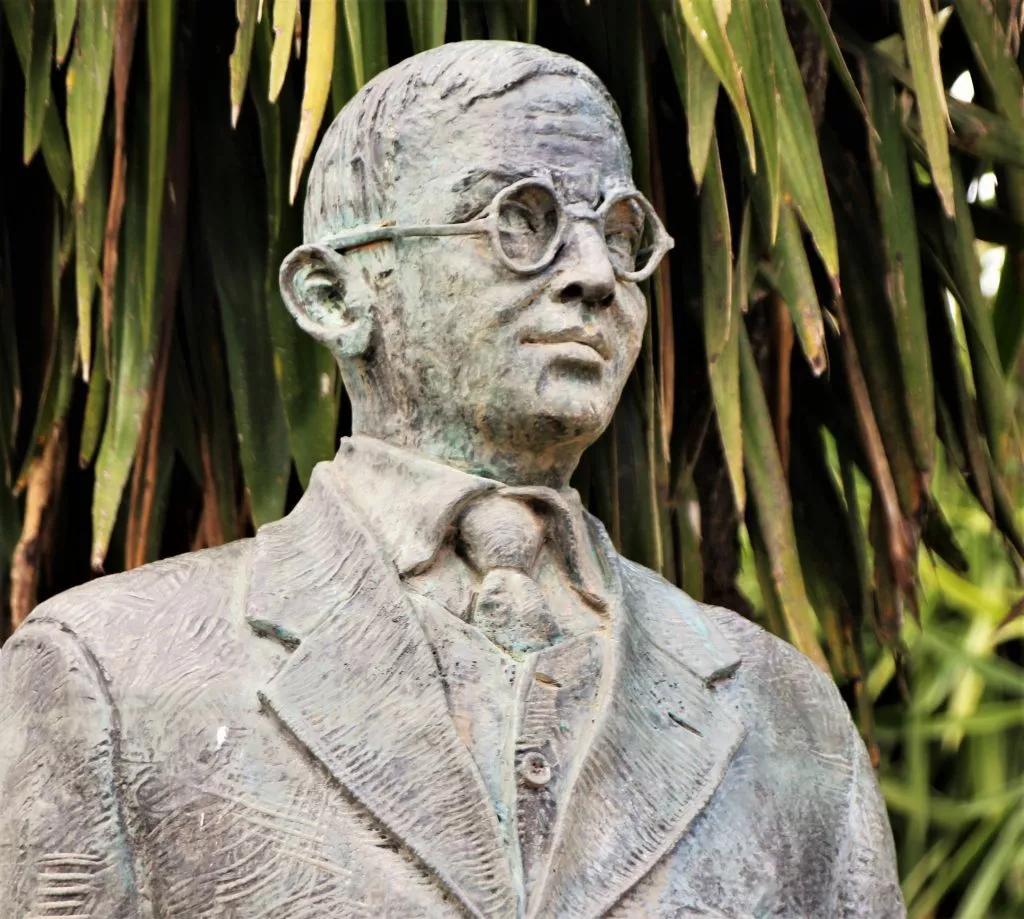
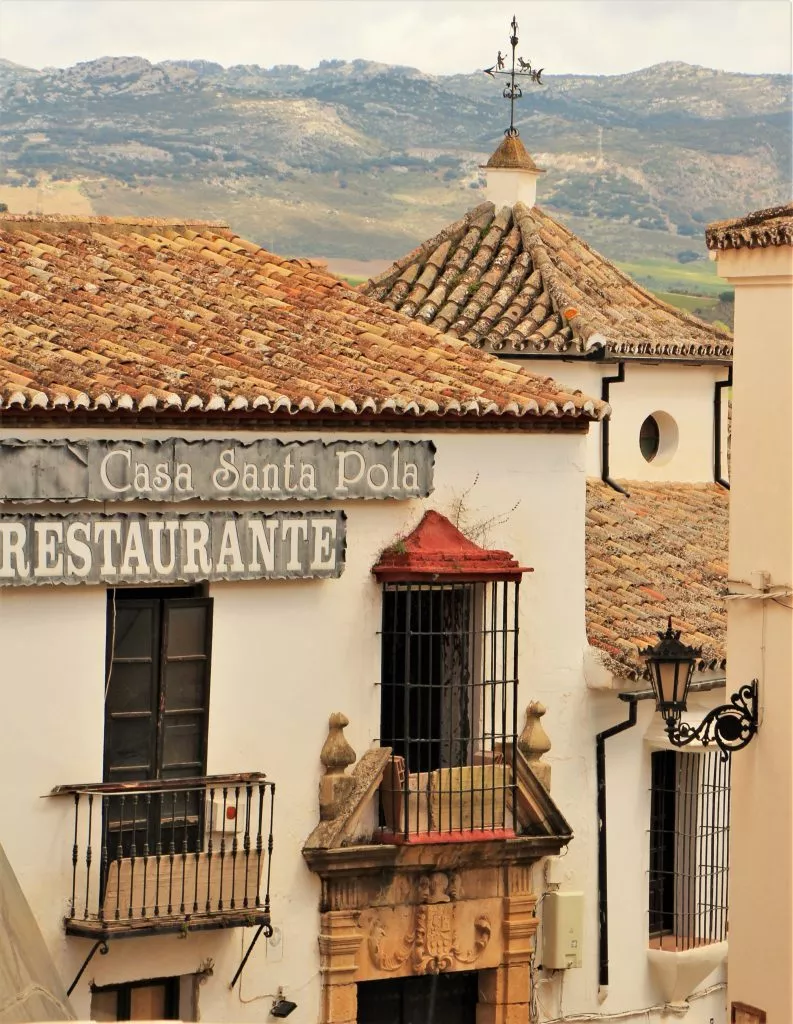
Visit Ronda what to see in Ronda?
- Puente Nuevo
- The Mirador de Aldehuela
- The Balcón del Coño
- The Plaza de Toros
- The Arab Baths of Ronda
- Mondragon Palace
- Plaza Duquesa de Parcent
- Church of Santa Maria de la Mayor
- The minaret of San Sebastián
- The city walls
- Moorish King’s Palace
- Plaza del Socorro
- The Camino de los Molinos
- Other places of interest in Ronda
Below you will find a map of the city with the option to display all locations.
The Puente Nuevo a must-see in Ronda
The “Puente Nuevo” is the iconic monument of the city of Ronda. Crossing it is a moment of great beauty, and all this with a 360 degree view!
Here is just a picture of the Pont-Neuf… Because you have to go there to feel the sensation of 100 meters high when you look down and away!
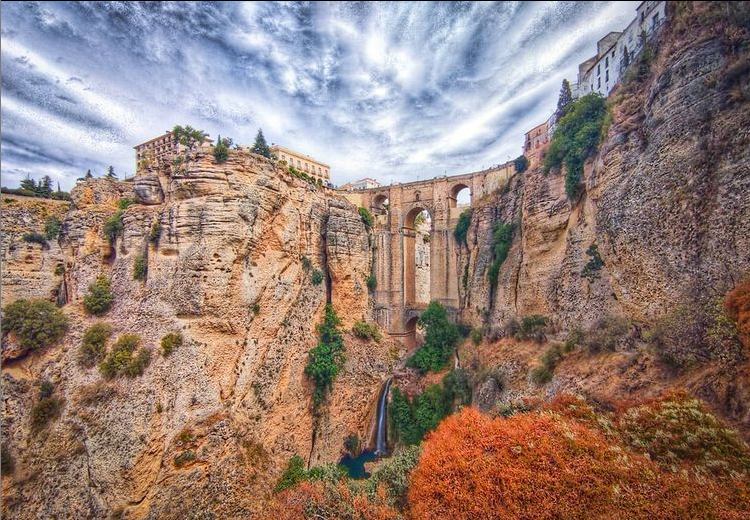
The Mirador de Aldehuela
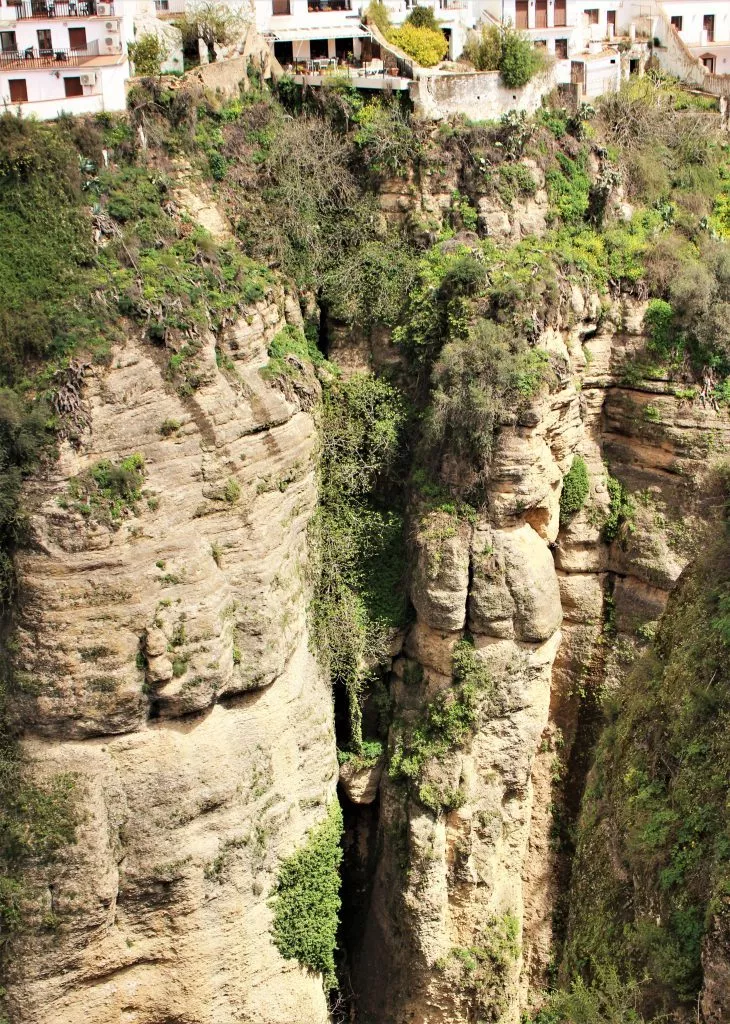
It is one of the city’s most famous viewpoints for the spectacular views of the steep gorge with the houses built on the edge of the cliffs.
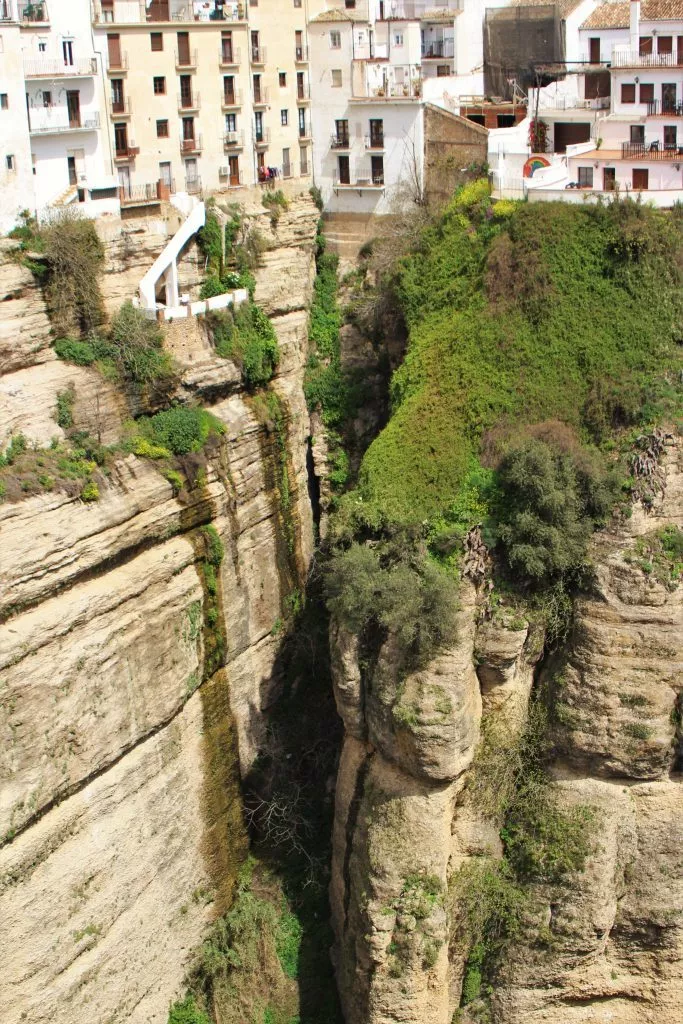
Le Balcón del Coño
It is also a watchtower, with a funny nickname…. It is located not far from the Puente Nuevo, in the Alameda Park. The Andalusians named this viewpoint for a simple reason …. Every visitor who looks at the landscape from this viewpoint is immediately stunned by the height and beauty of the surroundings, and expresses this with a “coño!
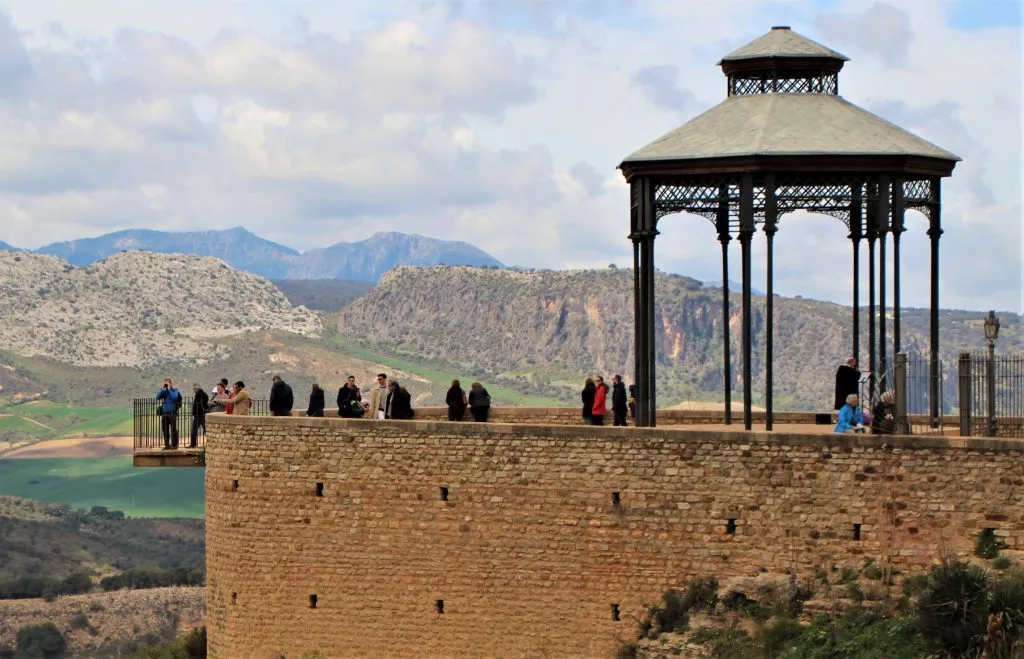
The Plaza de Toros
The bullring dates from the 18th century (1785), and is of great beauty.
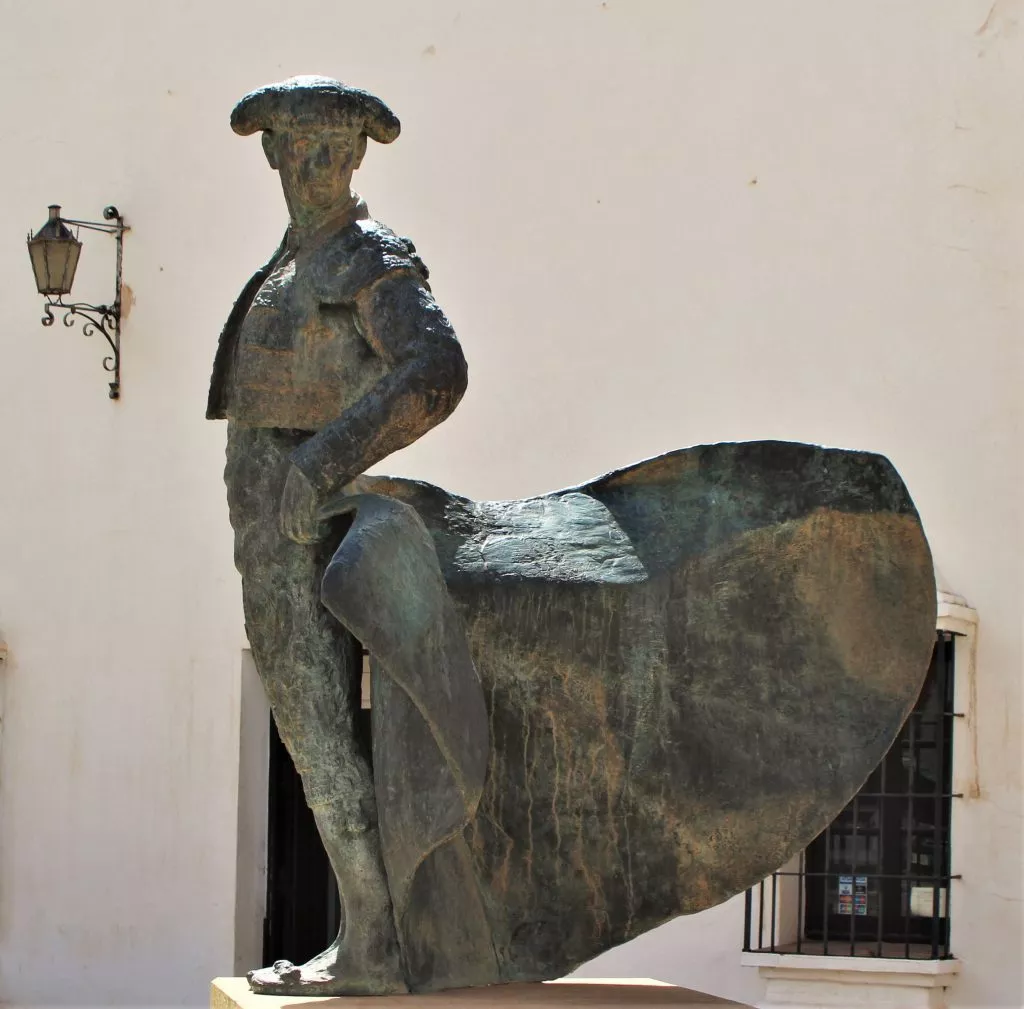
All around, several beautiful sculptures surround the bullring.
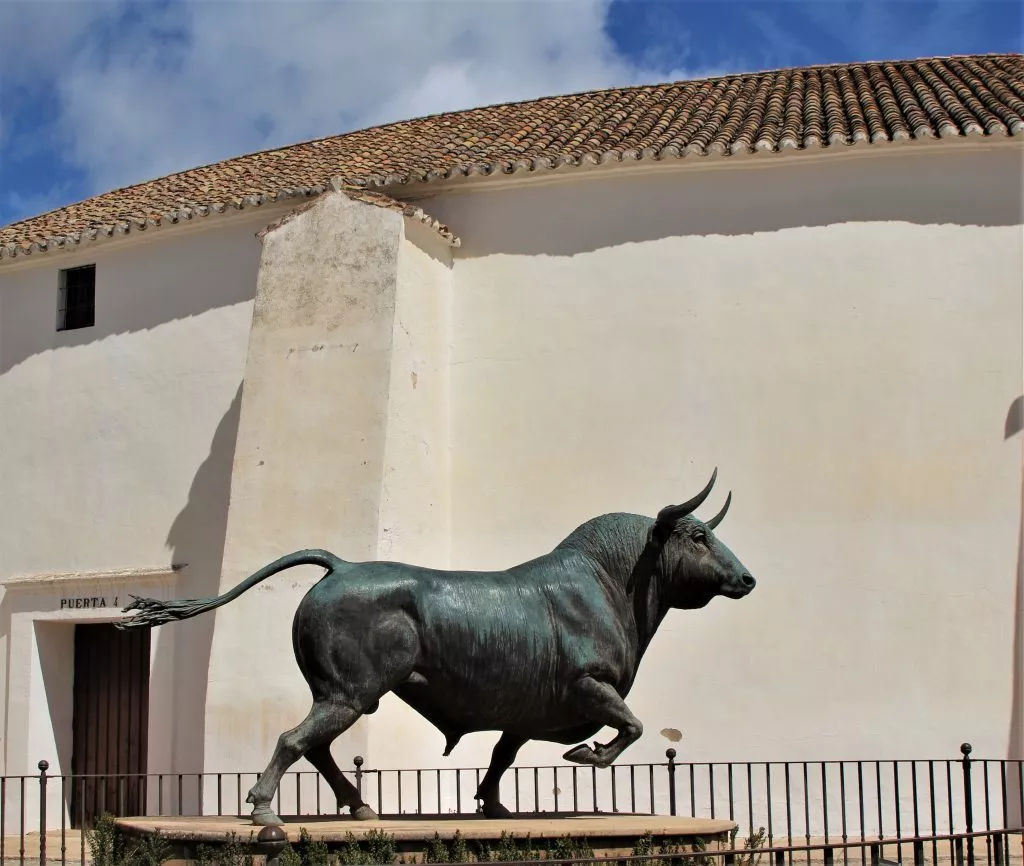
The bullring can also be visited from the inside.
The Arab Baths of Ronda (Baños Árabes)
They are said to be the best preserved in Spain. They were built during the reign of King Abomelik at the end of the 13th century.
The star-shaped “ventilation grids” and the boiler used to heat the water can still be admired.
The Mondragon Palace
This palace offers a mixture of Moorish and Renaissance styles on the inside.
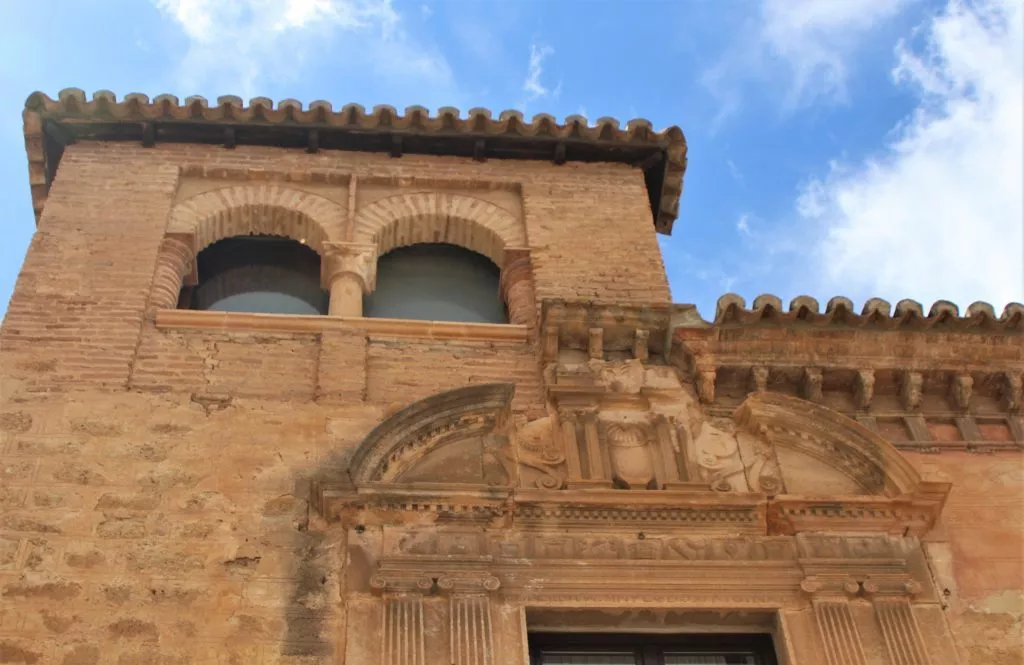
It was built in 1314 and after the Reconquest became the residence of the Catholic kings (Ferdinand and Isabella) when they came to Ronda.
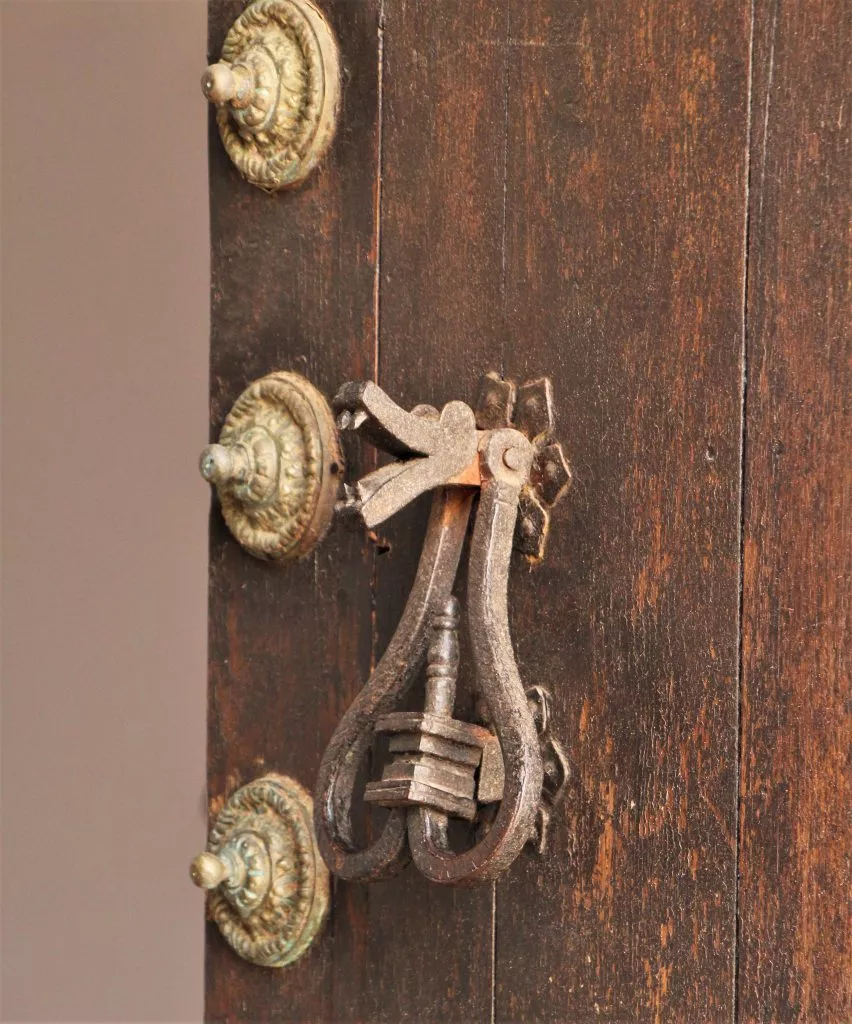
The Plaza Duquesa de Parcent
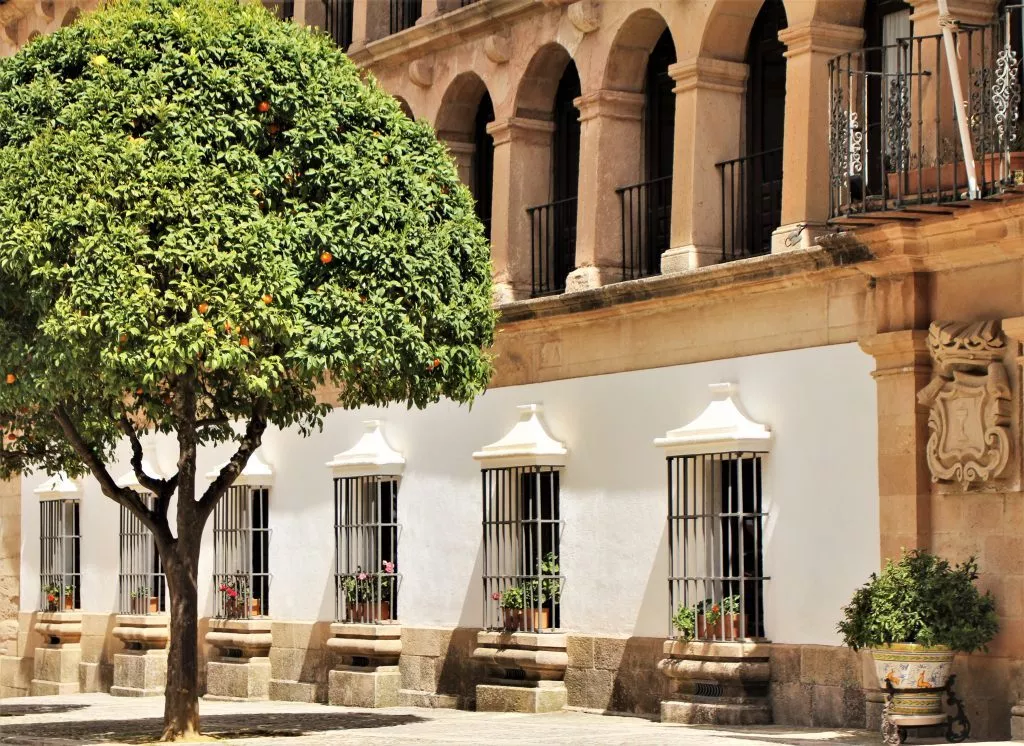
This is my favourite square in Ronda. It has many monuments to see and is very aesthetically pleasing in every way.
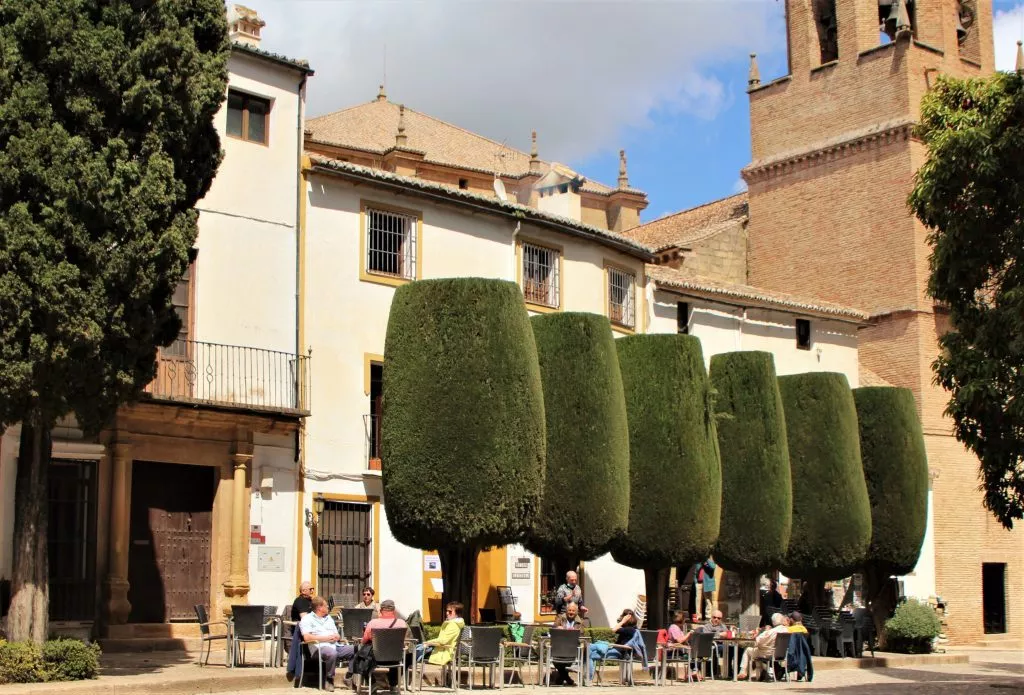
The church of Santa Maria de la Mayor
It is located in the Duquesa de Parcent square and was built over an old mosque (itself built over an old church from the 5th century). This square is the former central square of the medina during Al-Andalus.
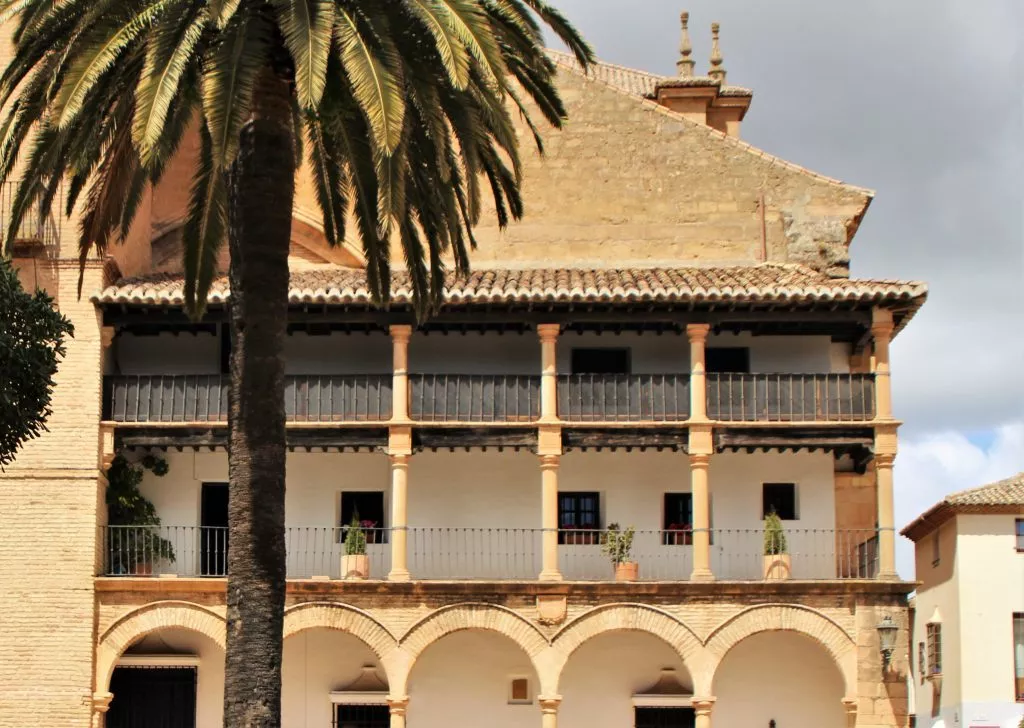
Several architectural styles can be distinguished (Moorish, Gothic, Baroque and Renaissance). From the Al-Andalus period, it has preserved the mirhab inside as well as the minaret which is now the church’s bell tower.
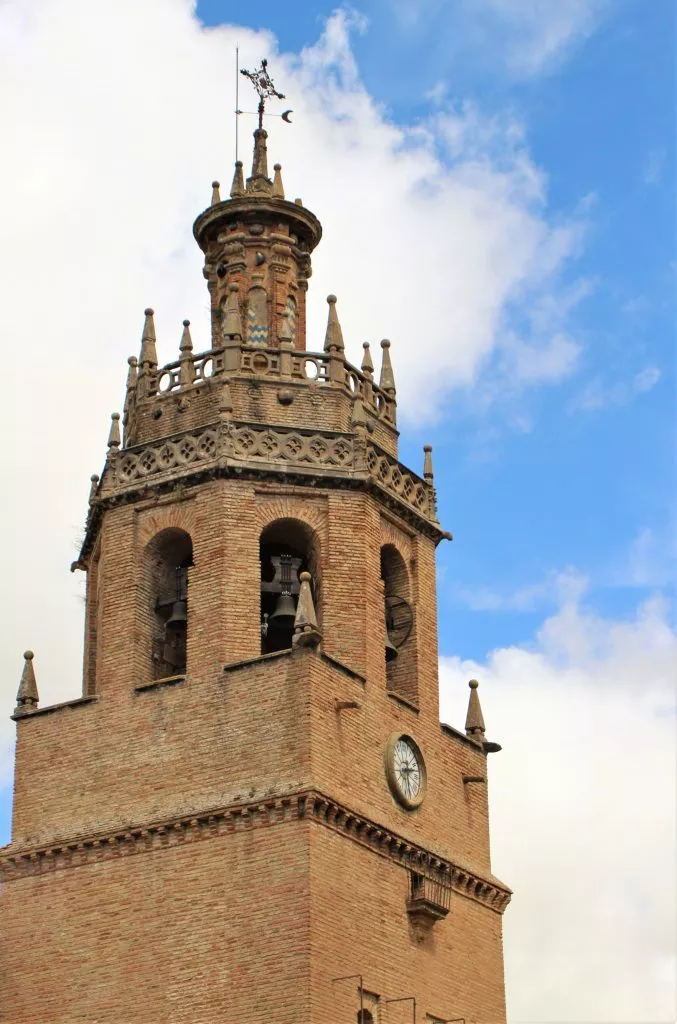
The minaret of San Sebastián
This minaret of a former mosque has stood the test of time. It was later attached to a church which has now disappeared.
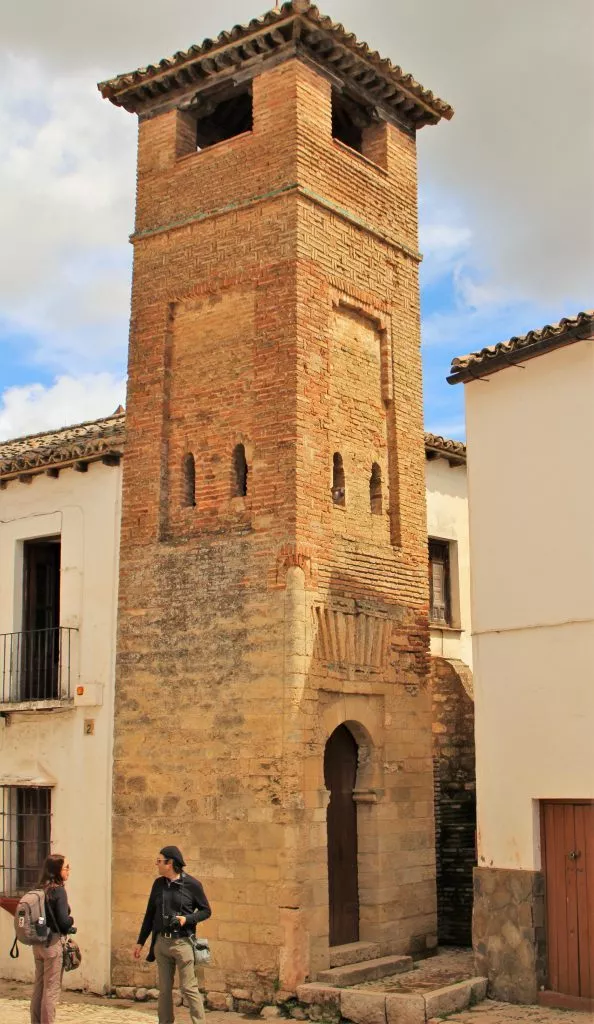
The city walls
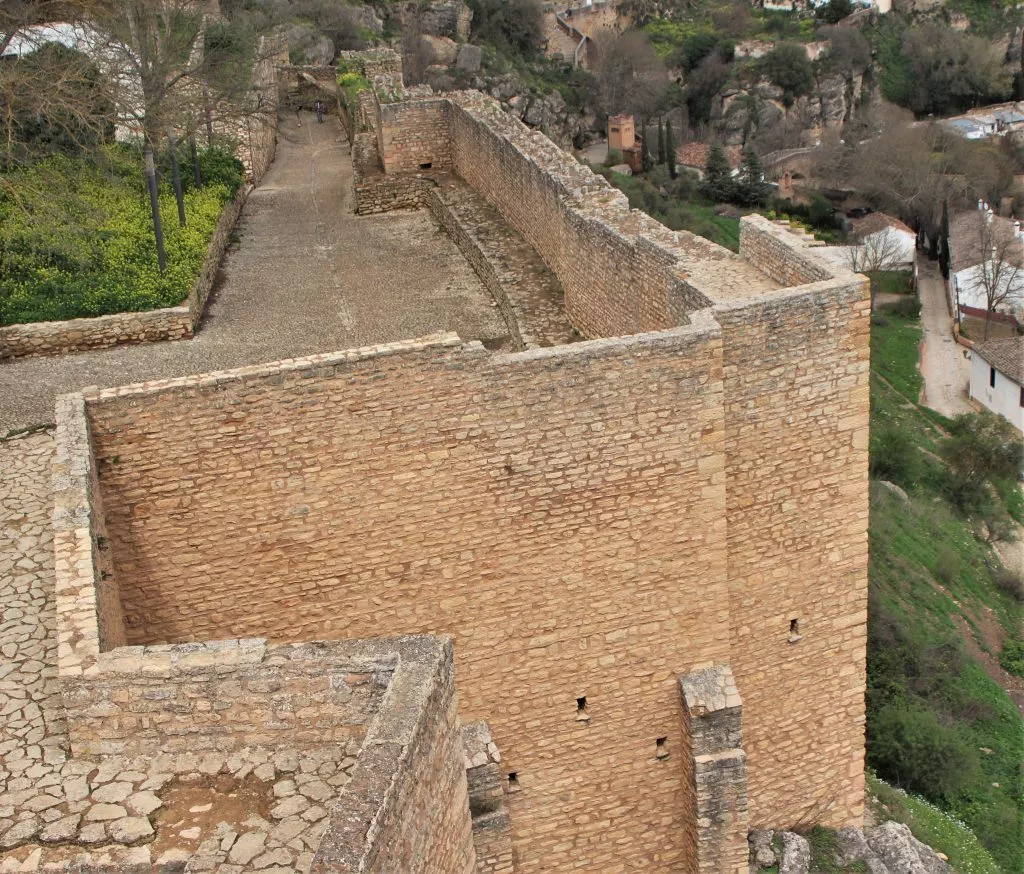
Ronda had very high walls that were built during the time of Al-Andalus to protect itself from any attack. As the city developed, the wall was extended with gates to the city, some of which can still be seen today.
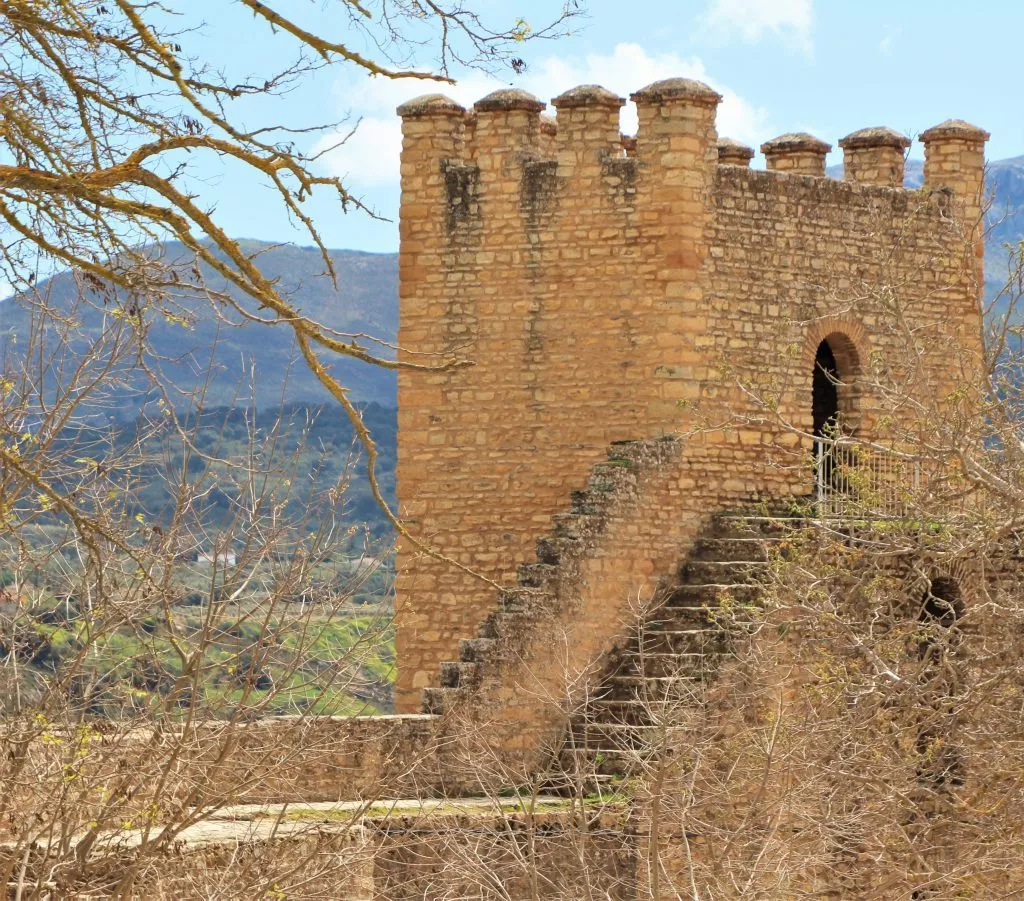
There are 2 places in the city that offer a very nice view of the wall and its access gates to the city. Both are located 2-3 min from the Plaza Duquesa de Parcent
- The Almocabar Door
- Cijara walls, which protected the Muslim medina of Ronda.
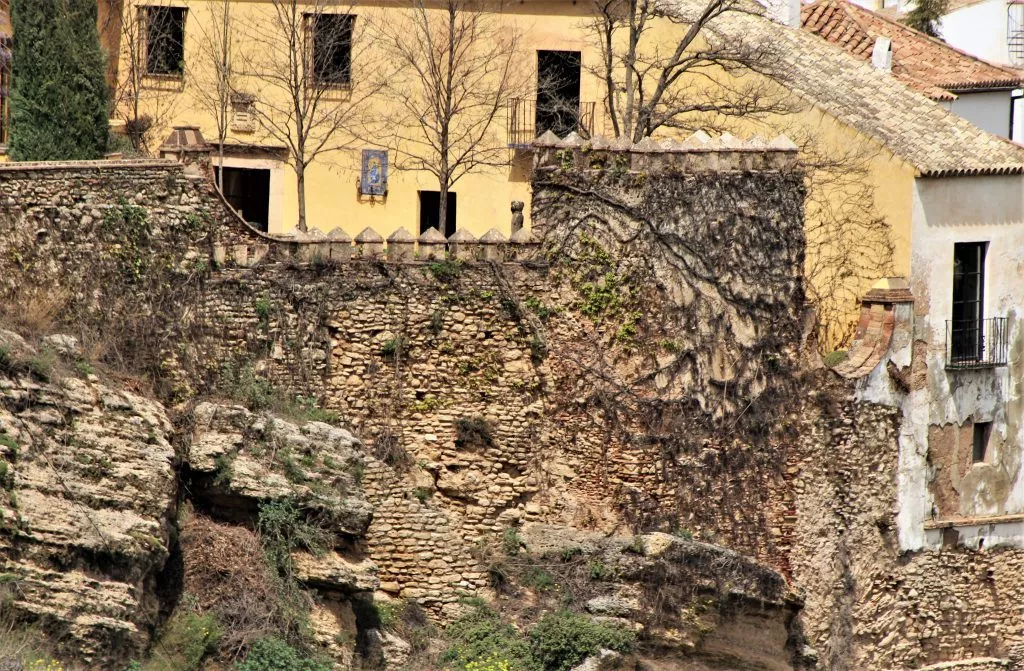
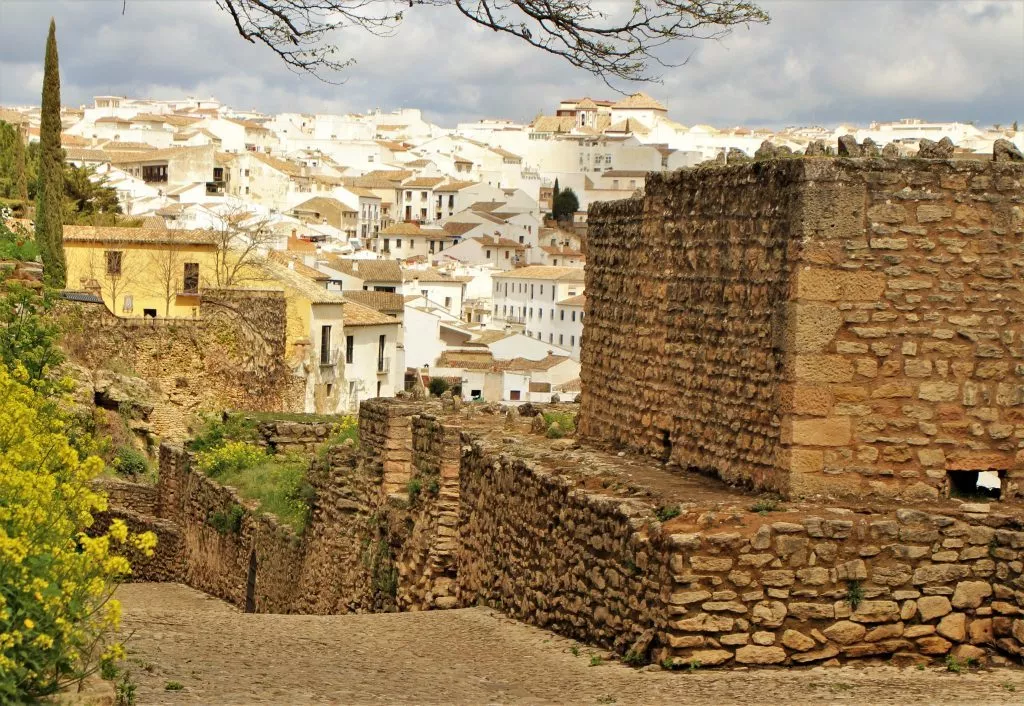
The Moorish King’s Palace
It is a palace that was built in the 14th century.
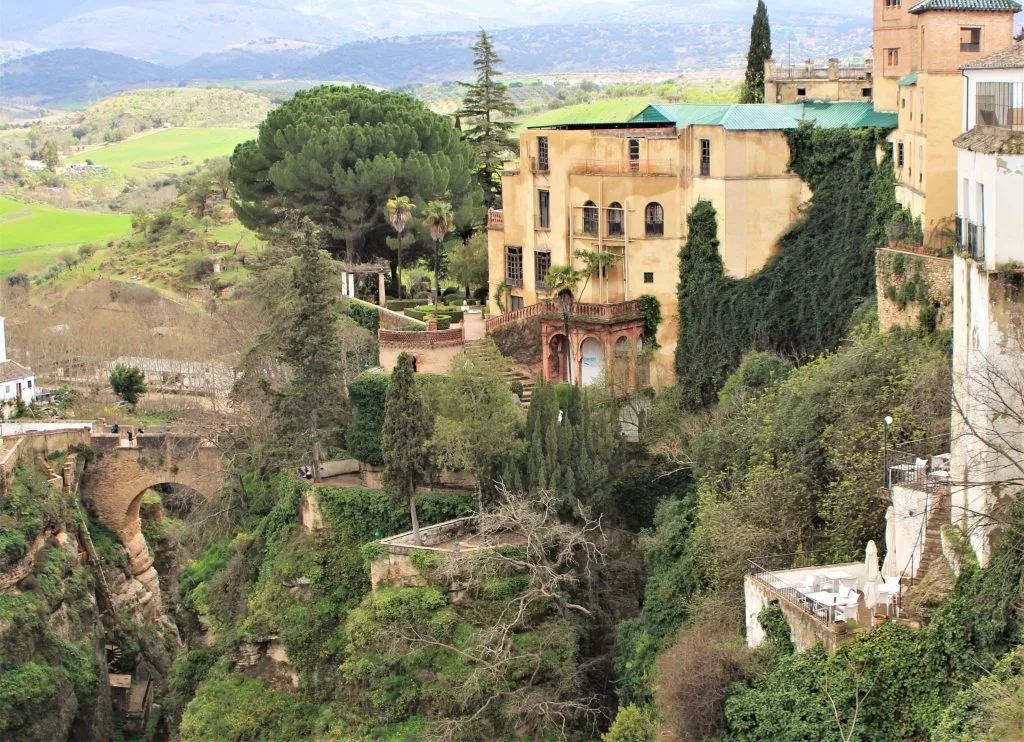
It is located next to the “puente viejo” (old bridge), both of which offer one of the most beautiful postcards of Ronda.
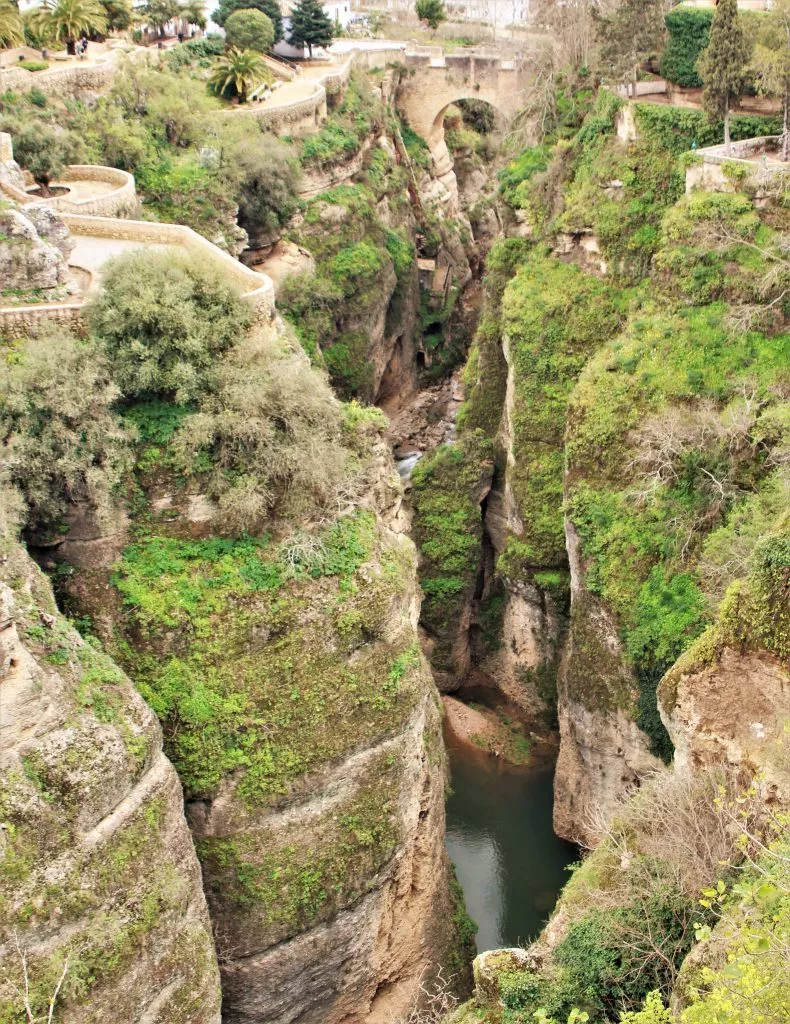
This palace, also known as Mina, hides an ingenious hydraulic system built in the Muslim era that drew water from the river 50 metres below and pumped it into reservoirs (aljibes). It is possible to visit it and to descend the 236 steps carved in the stone that lead to the water catchment point.
The plaza del Socorro
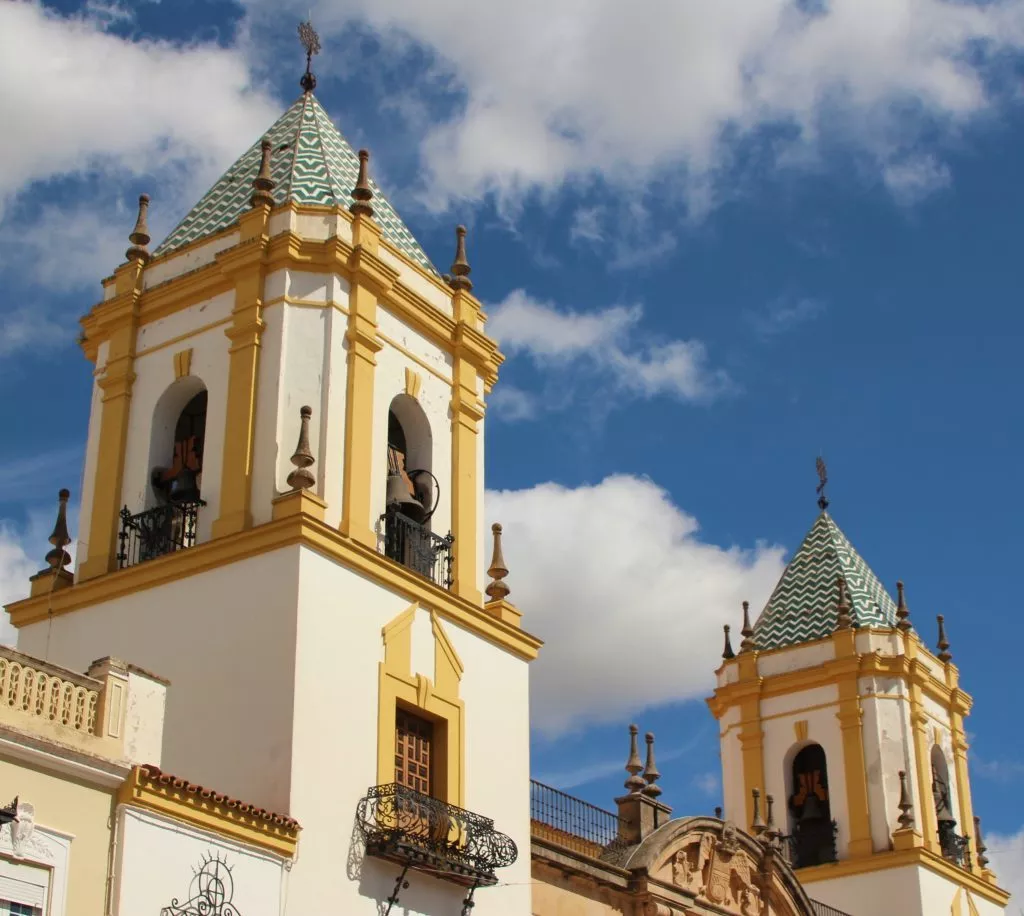
In this square there is a beautiful church and a statue with the motto and coat of arms of Andalusia.
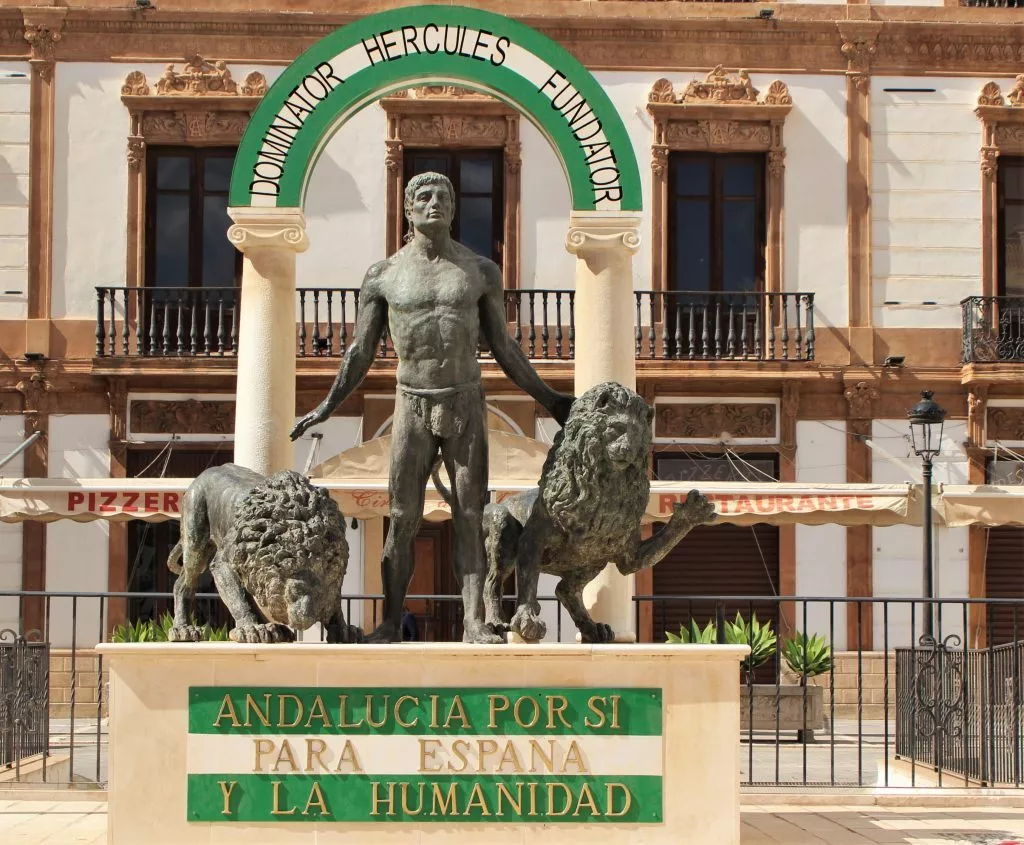
A very nice walk in Ronda: the “camino de los molinos”
This path (the mills path) will take you to the bottom of the Tajo and will also offer spectacular views, including the view of the “Puente Nuevo”.
The list of 44 monuments and sites to visit in Ronda :
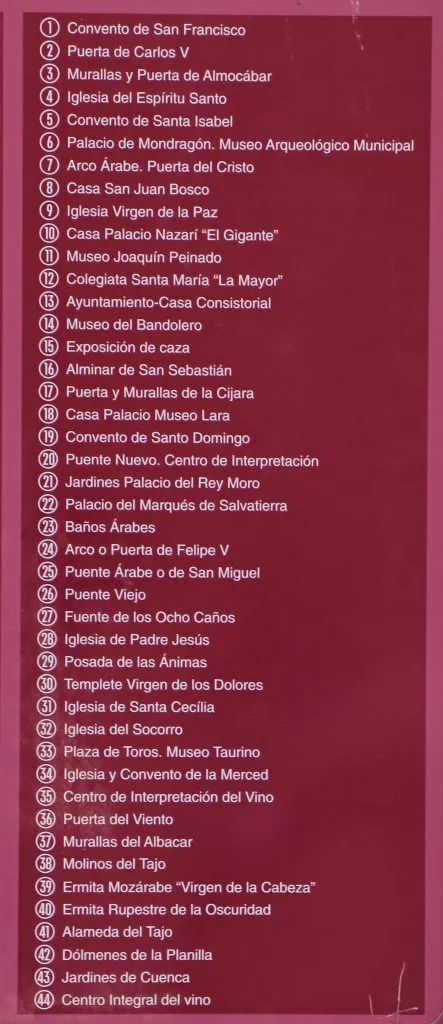
If you are in the western part of the Costa del Sol and would like to visit Ronda and Setenil de las Bodegas, you can use the following link to book a tour from Málaga, Torremolinos, Mijas or Benalmadena.
Where to eat in Ronda
A great place to have lunch in Ronda during your visit, with exceptional cuisine and service on the terrace. This is the restaurante-cafetería Armiñán, The cook is only 21 years old, but once again, value and talent do not wait for the number of years.
What to do in Ronda ?
Below you will find activities and visits, classified by theme. You can book them online today.
The +: the activities can all be cancelled up to 24 hours before the scheduled date
Note: for those who are interested – and curious – here’s a page with 10 great leisure activities to do in Ronda.
In the event that you are on holiday on the “Costa del Sol Oriental”, the eastern part of Malaga:
From your place of stay between Nerja and Torre del Mar, a great guide organises a day trip to discover Ronda and Setenil de las Bodegas. This excursion is a semi-private tour (maximum 2 to 8 people).
To know the details of the tour, the price and to book online, simply click on : Ronda and Setenil de las Bodegas Tour.
Romantic Ronda Fair in May
The Romantic Ronda Fair is celebrated every year with an incredible feria.
The Real Feria de Mayo – Ronda Romántica takes place every year in May.
During this feria you can enjoy several horse shows.
It was originally a cattle fair that over the years has become a party place for muleteers, romantic travellers and bandits from the Serrania de Ronda!
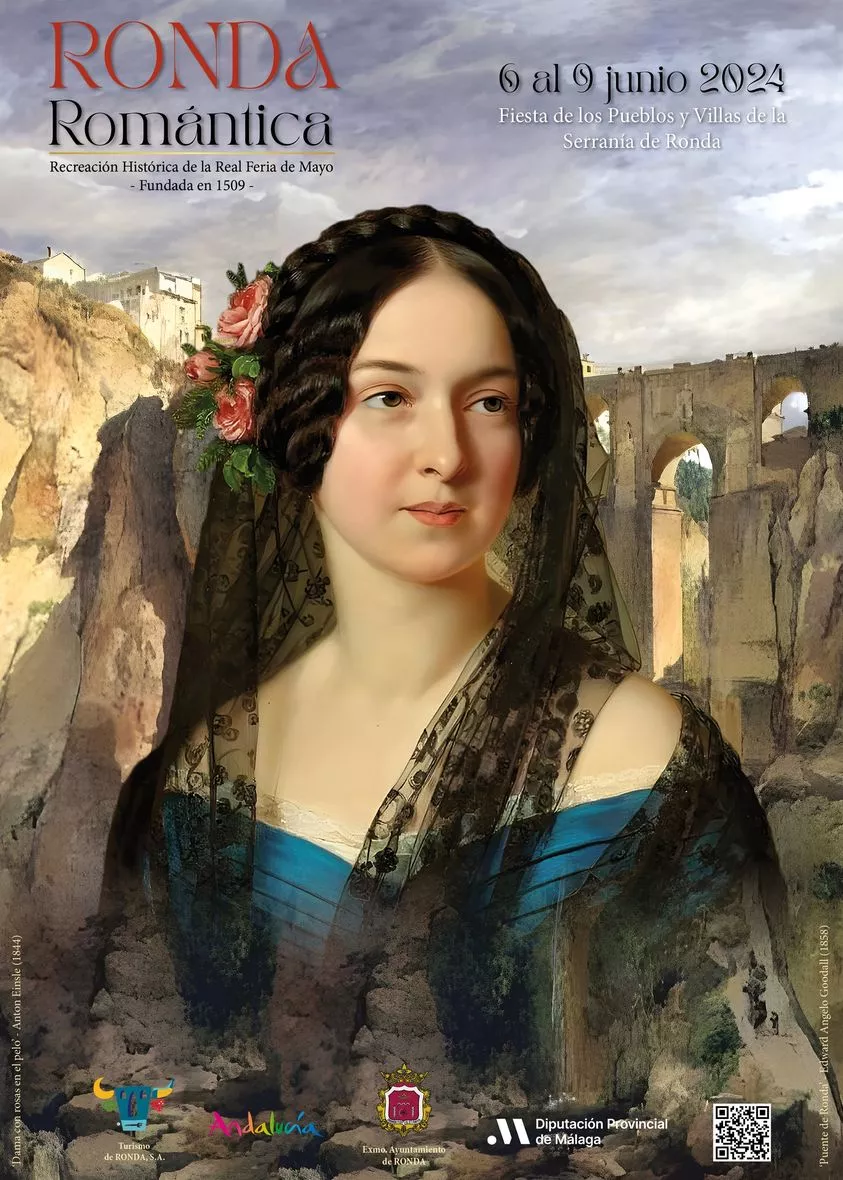
It is the second oldest fair in Andalucia, after the one in Cordoba (also in May), which dates back to 1482.
Map of Ronda for the visit (zoom the map to the desired size)
Find accommodation in Ronda
Places to visit around Ronda
There is a marvellous little white village only 15 km from Ronda: Setenil de las Bodegas.
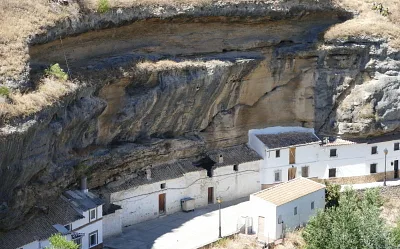
Since the Roman Empire these two towns have been linked: Acinipo (Ronda) produced wine and the caves of Setenil were used as a warehouse…
Some useful links (car hire, ideas for visits)
Easy and economical bookings
If you are in Andalucia as part of a tour with several major cities to visit, here are some links that may be of interest:
Seville
Seville, the capital of Andalucia, is a city full of treasures to discover and monuments to visit.
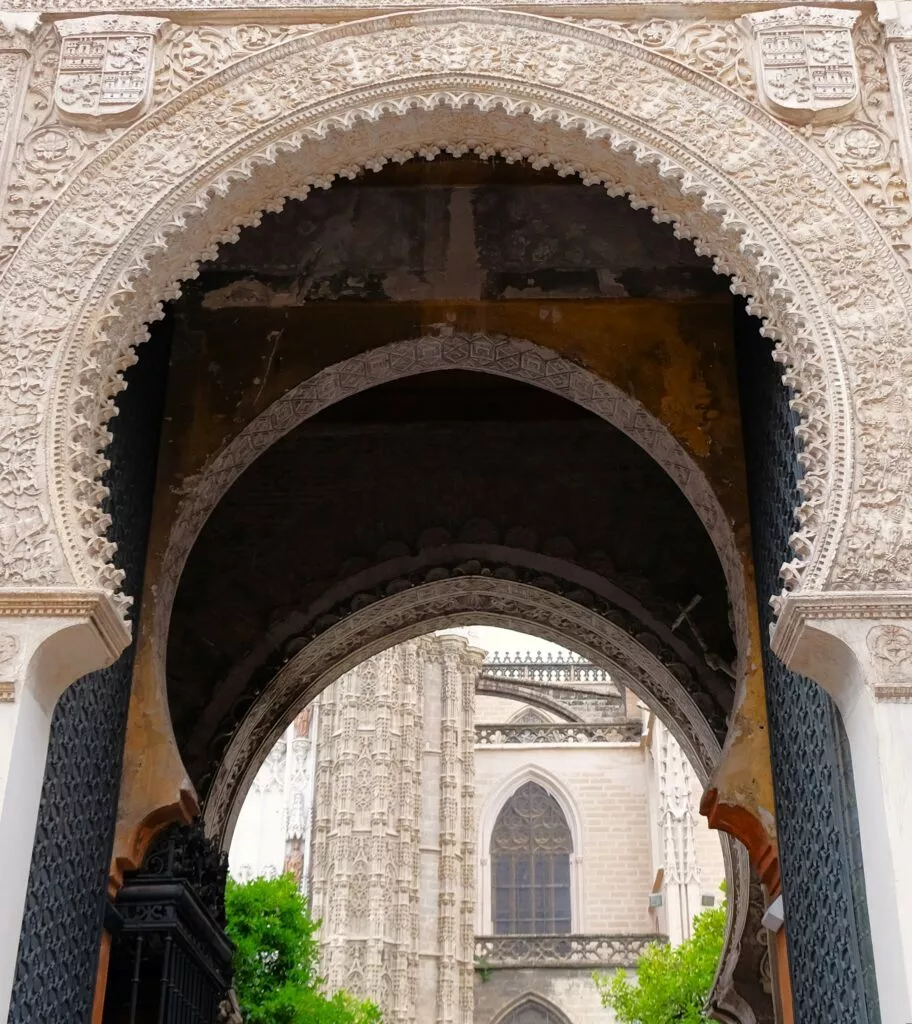
Here you will find everything you can see in Seville in 3 days. And for those who will stay longer you will also find information on secret Seville and the Santa Cruz and Triana districts.
Cadiz
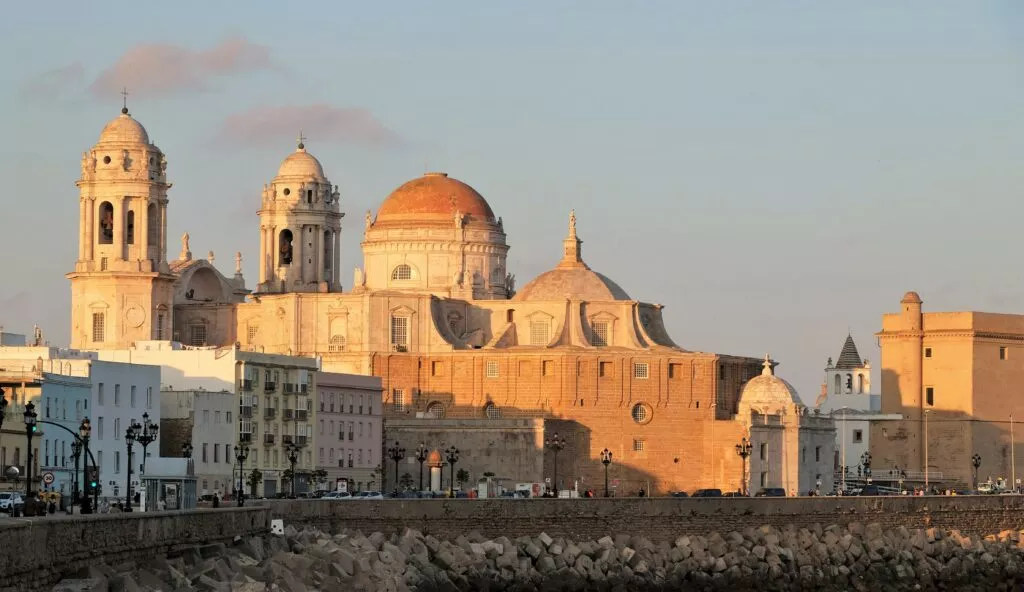
Visit Cadiz, a city with an incredible past and great beauty, on the Costa del la Luz.
Malaga
When you reach the Costa del Sol you will find in this link all must-sees in Malaga :
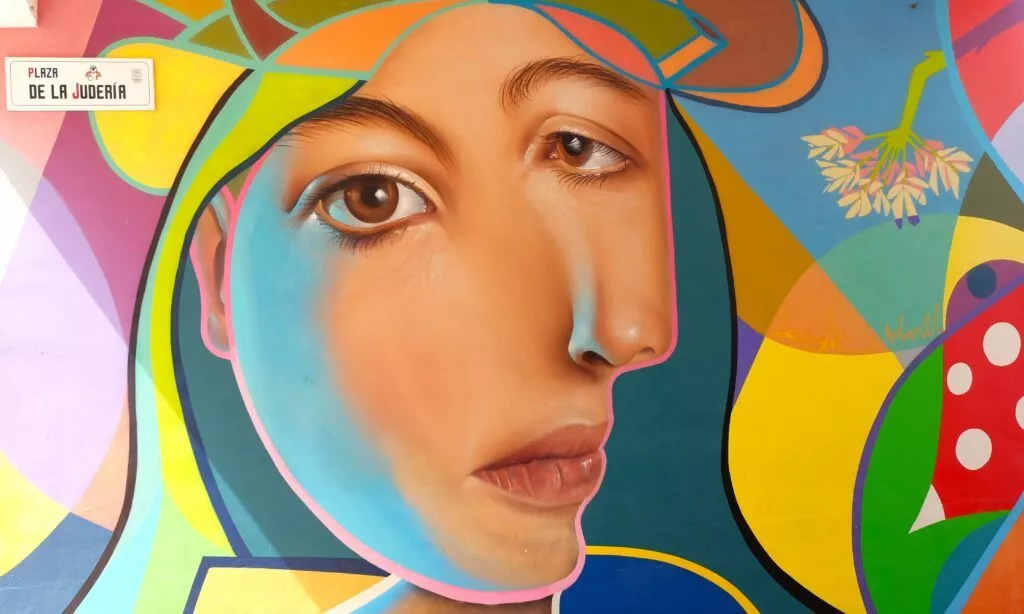
Granada
Discover what to see in Granada, and visit the Albaicin and Sacromonte districts:
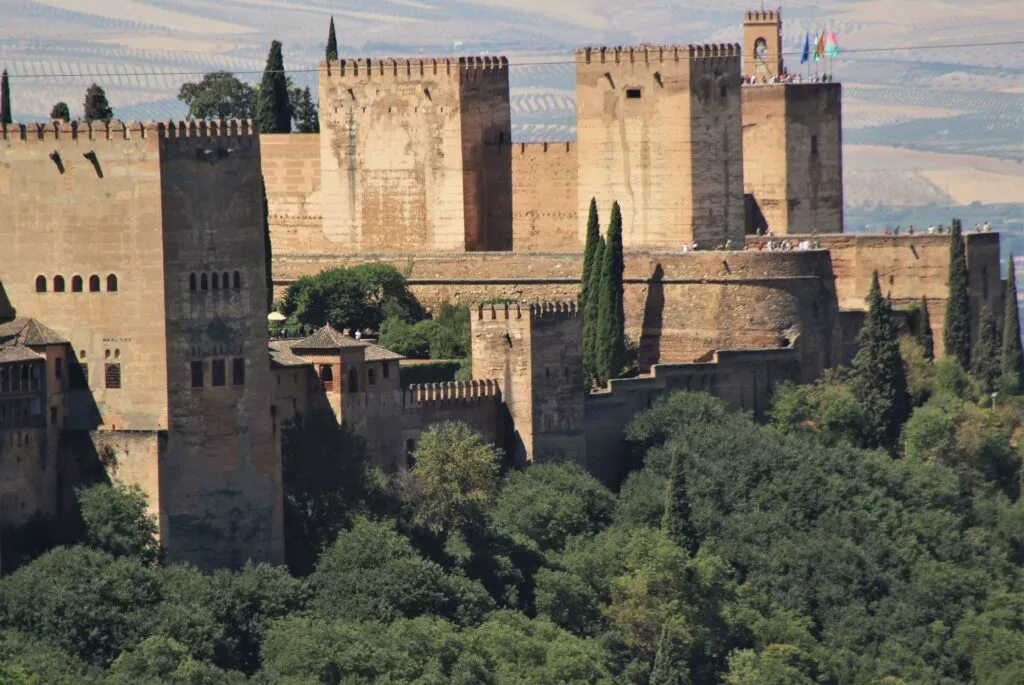
Cordoba
And of course, visit Cordoba, the caliphate city, and the Juderia district
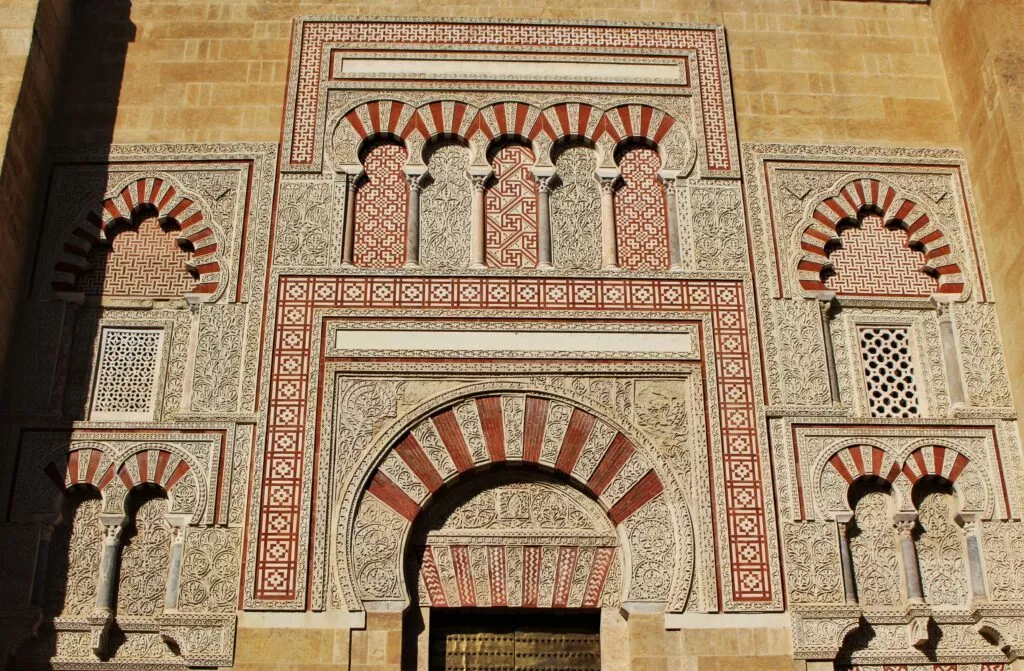
A selection of great activities to do in Ronda and its surroundings
Find more ideas for visits to authentic Andalusia: see the blog pages on Andalucia.
Here is the link to receive our newsletter from the andaluciamia.com blog
The latest articles on Andalucia
-
Interactive map of Andalucia with best places to see
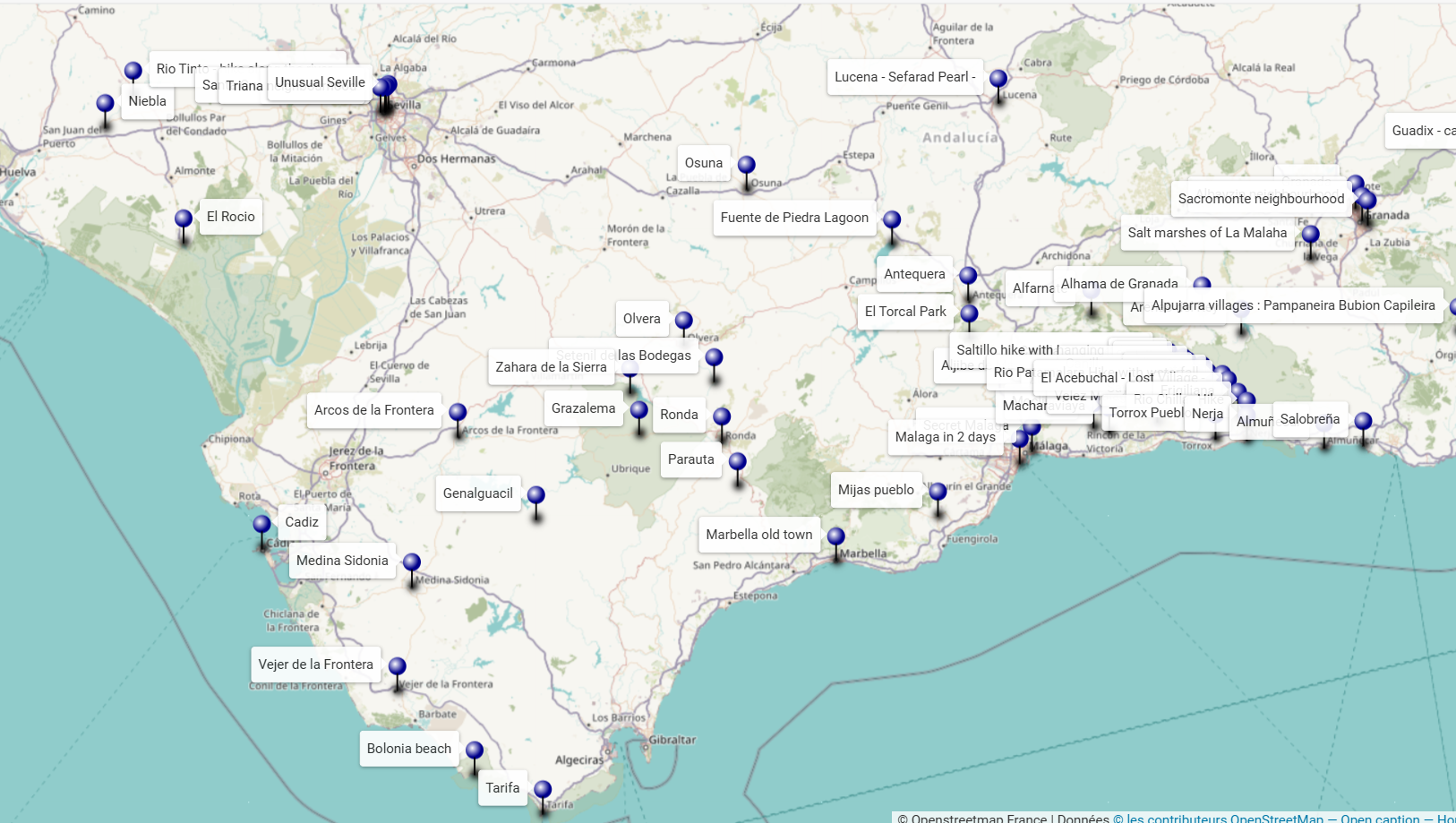
An interactive map of Andalucia to discover the sites to see around your holiday destination or to prepare a tour or road-trip.
-
Top 15 Must-See Attractions in Ubeda, Spain
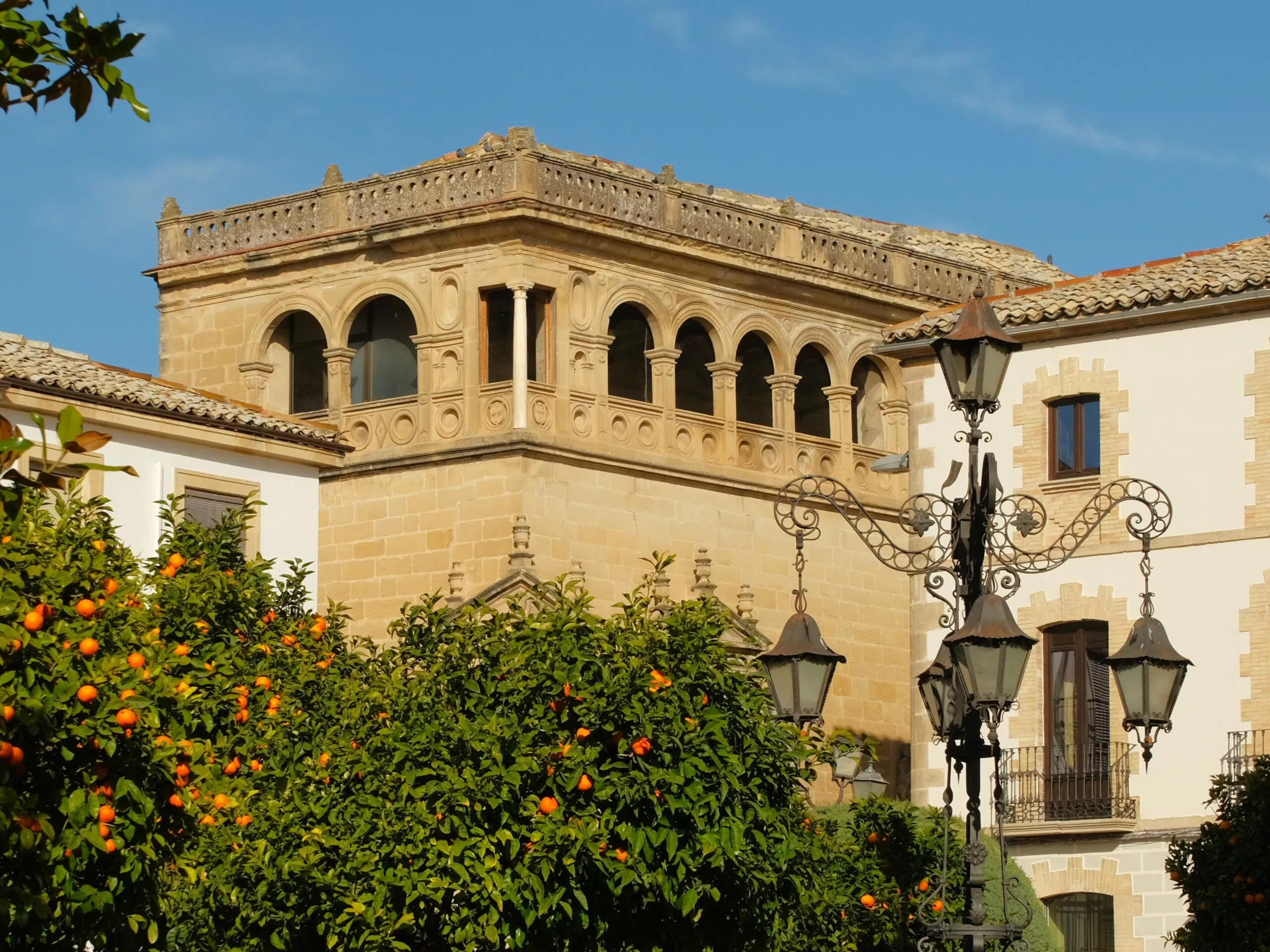
Here are the best places to visit and what to see in Ubeda. This Renaissance-style capital city of Andalusia is a marvel.
-
Visit Olula del Rio, the Mujer de Almanzora and the museum
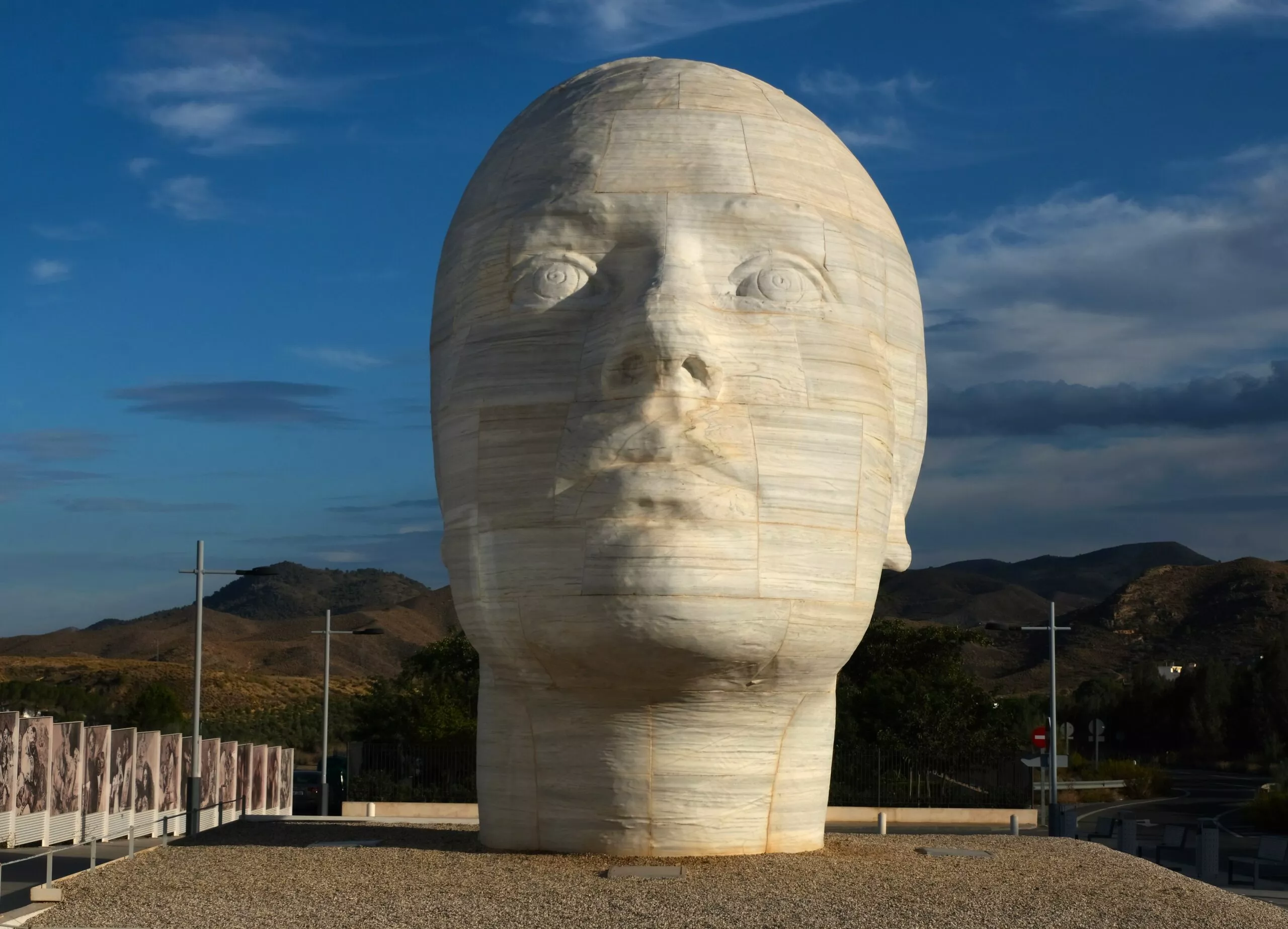
Olula del Rio see its 3 wonders: an extraordinary marble sculpture, a surprising museum and an incredible photography centre.
-
Fiesta del Queso in Zuheros Cordoba
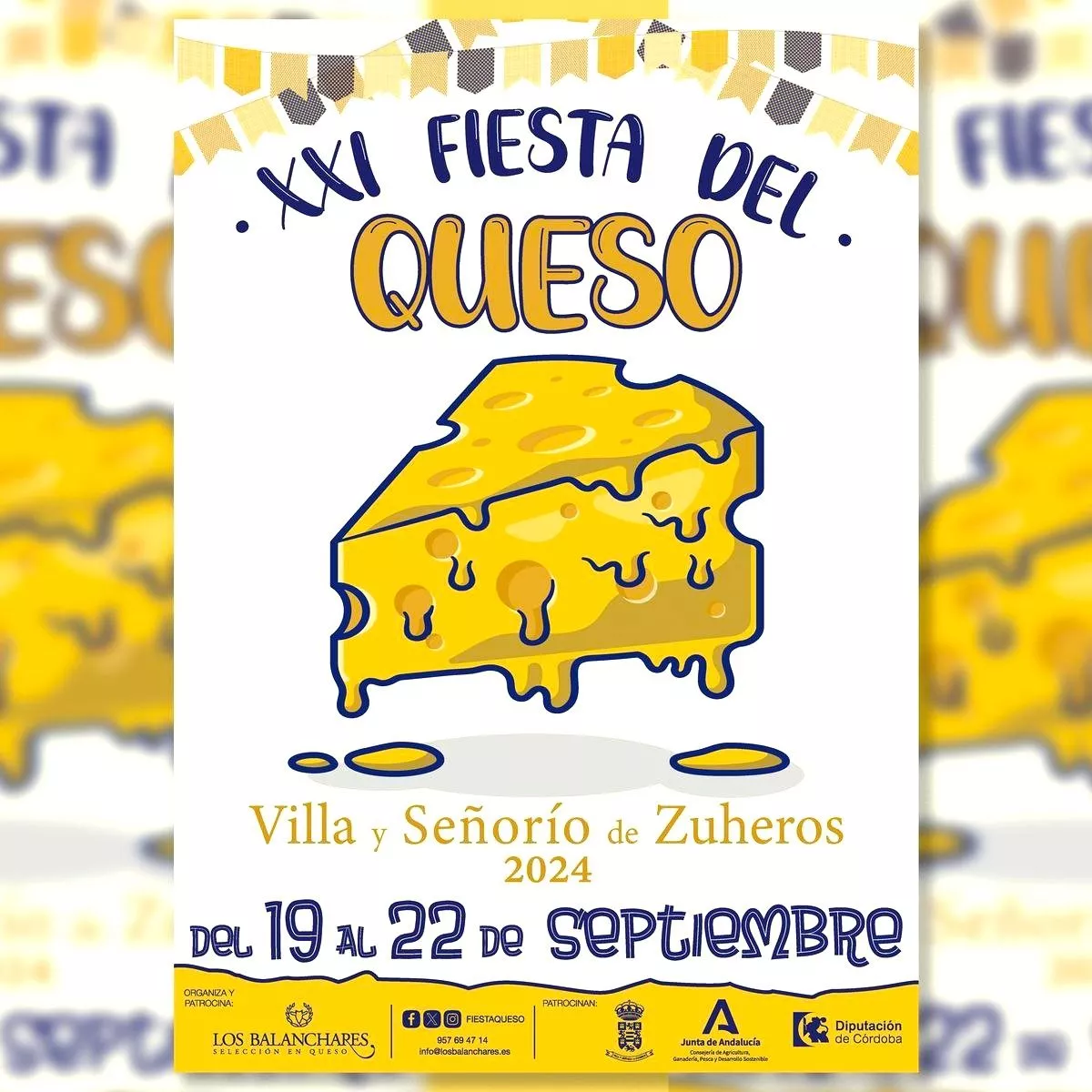
Discover the incredible Cheese Festival – Fiesta del Queso in Zuheros, one of the most beautiful white villages in Spain.
